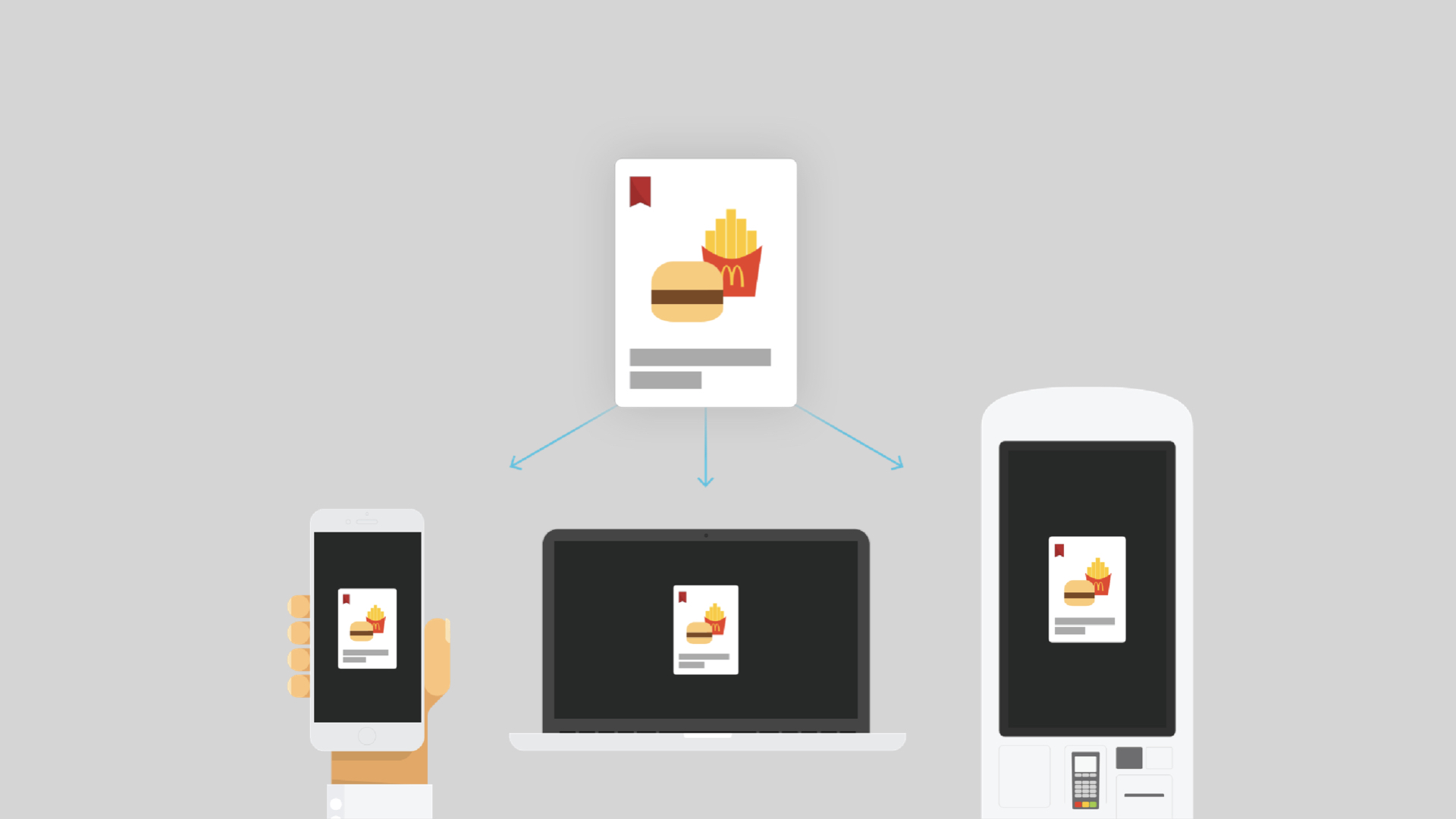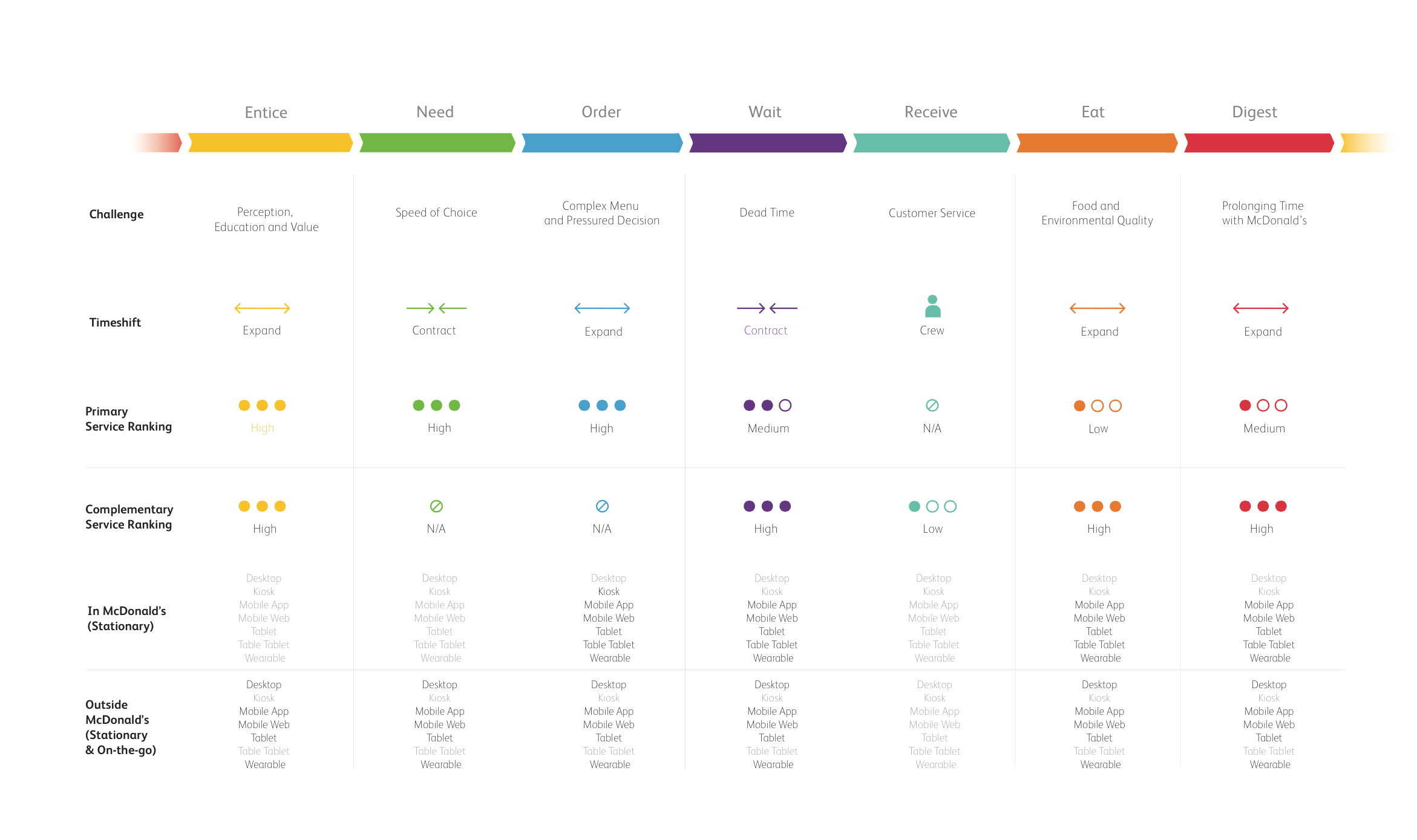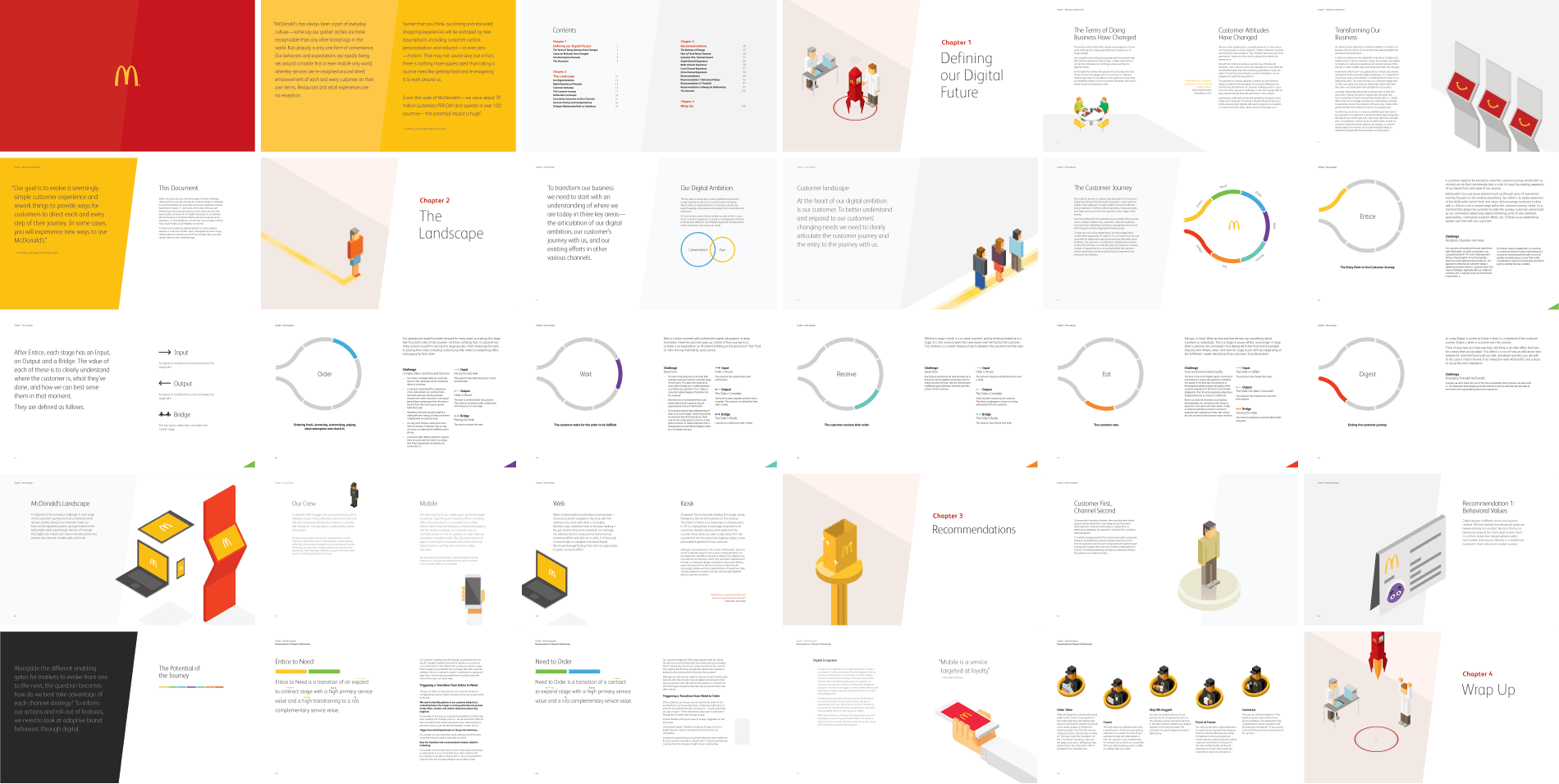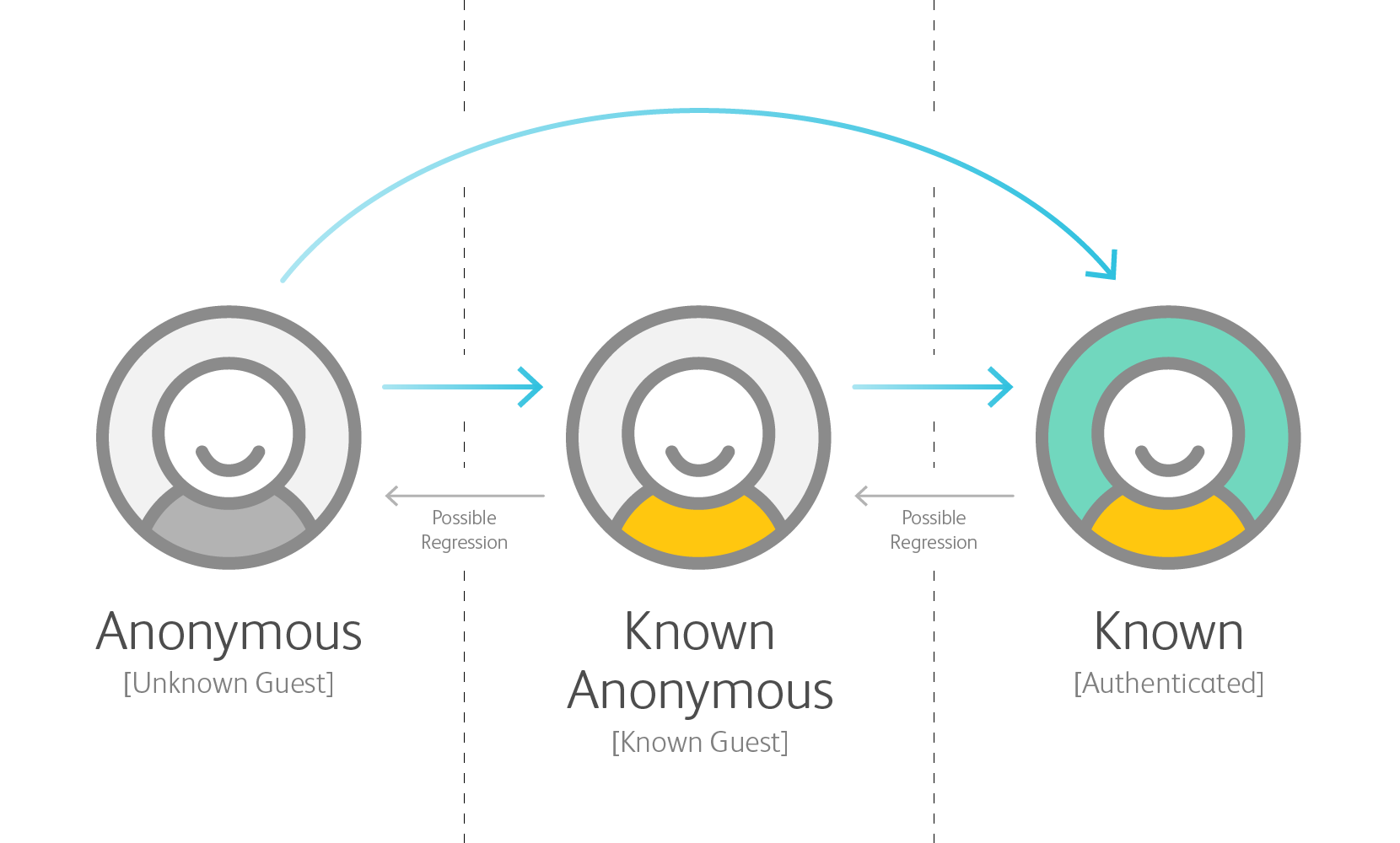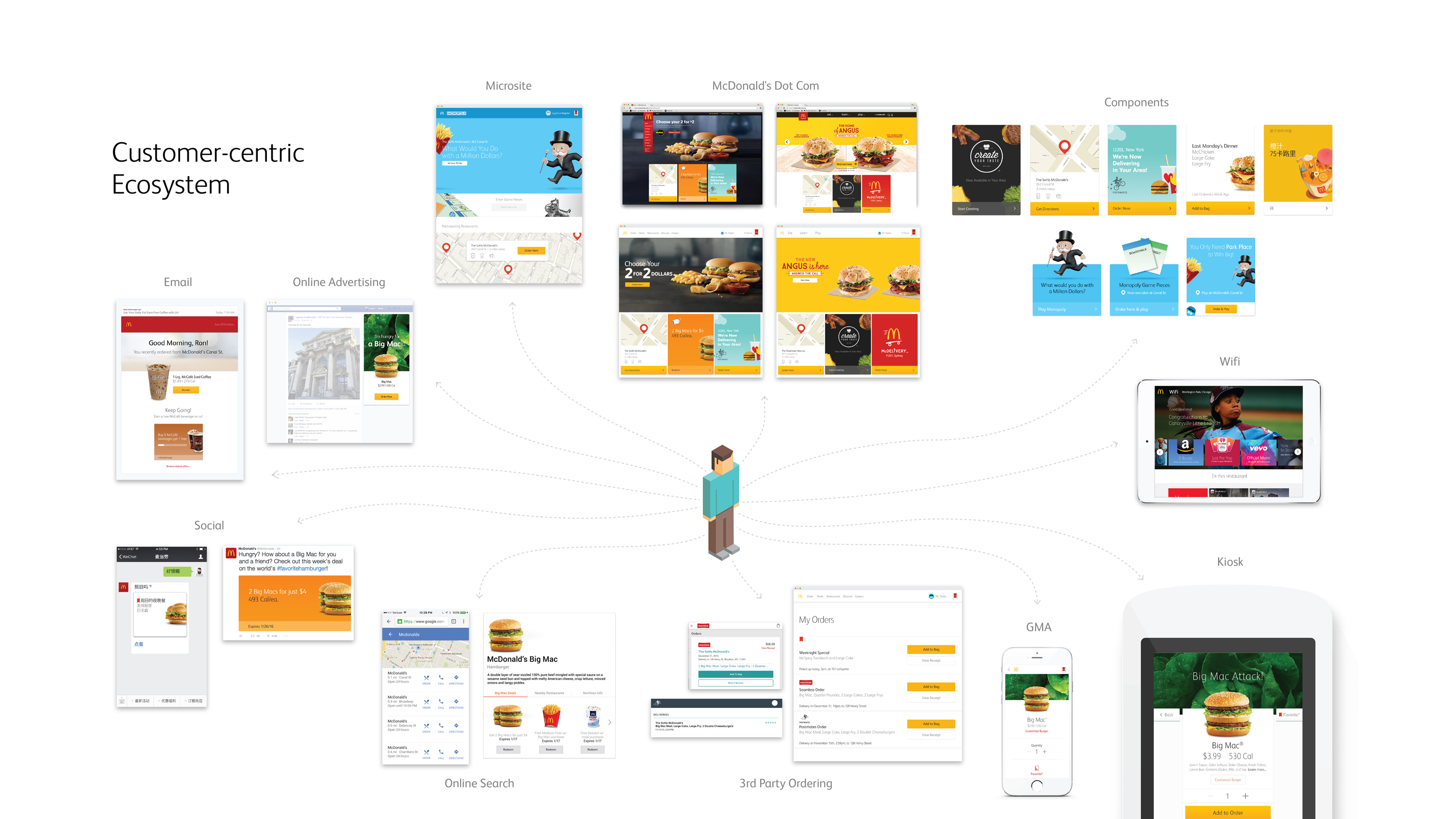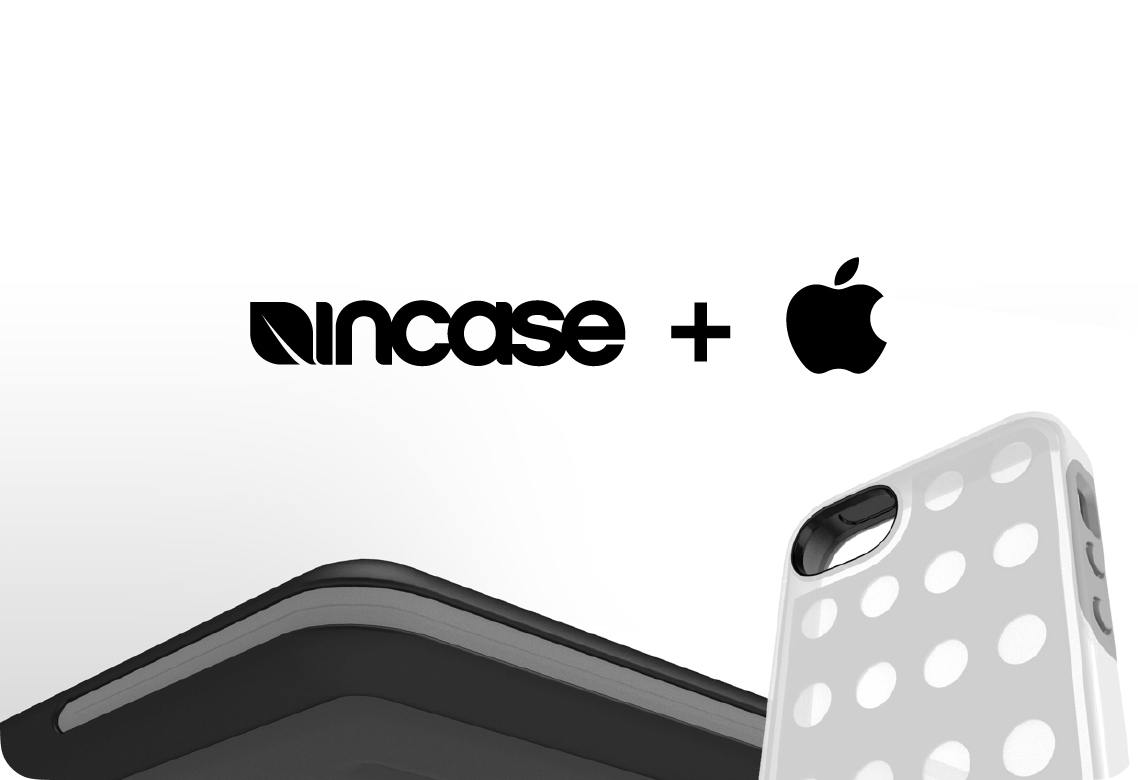
Transforming the world’s largest restaurant through digital experience
Transforming the world’s largest restaurant through digital experience
Together, Method and the world’s largest restaurant envisioned a new experience for every customer—an enhanced offering that’s globally connected, locally relevant, and always convenient—grounded in a digital omni-channel experience.
The digital brand vision rests on two pillars:
Everywhere Commerce and Eating Together.
Together, Method and the world’s largest restaurant envisioned a new experience for every customer—an enhanced offering that’s globally connected, locally relevant, and always convenient—grounded in a digital omni-channel experience.
The digital brand vision rests on two pillars:
Everywhere Commerce and Eating Together.
Digital Brand Vision
Omni-Channel Experience
Three Dimensions
Omni-Channel Experience
Three Dimensions
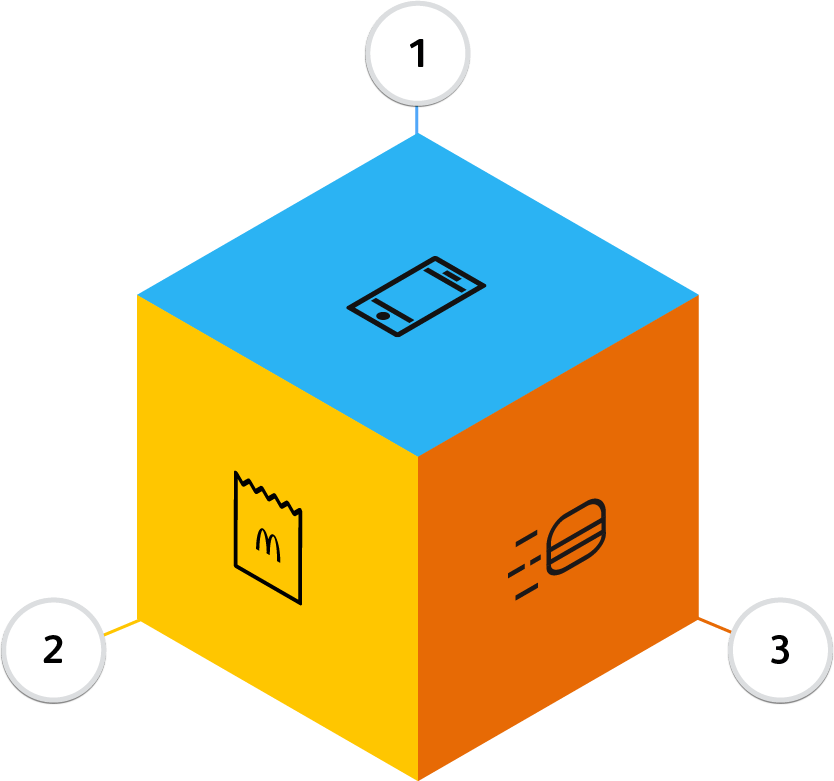
1. Interfaces:
Mobile, Web, Kiosk
2. Capabilities:
Ordering, Payment Only, Offers & Rewards, Container App
3. Service Models:
Front Counter, Drive Thru, Curbside, Delivery, Table Service

Six Experience Principles
We began by assessing McDonald’s global business objectives while accounting for local markets. We defined a strategic design framework that’s flexible enough to accommodate cultural nuances for every unique market, all in the service of delivering a best-in-class experience regardless of location, demographics, or touchpoint. This framework manifests in experience principles that guide our design vision.
Six Experience Principles
We began by assessing McDonald’s global business objectives while accounting for local markets. We defined a strategic design framework that’s flexible enough to accommodate cultural nuances for every unique market, all in the service of delivering a best-in-class experience regardless of location, demographics, or touchpoint. This framework manifests in experience principles that guide our design vision.
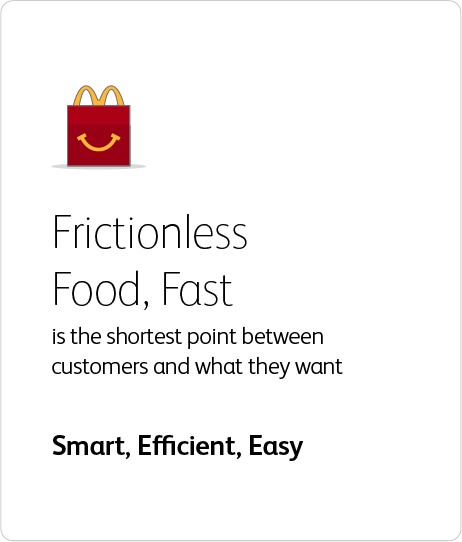
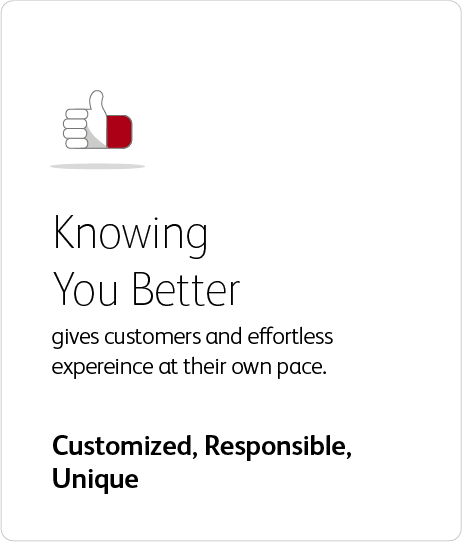
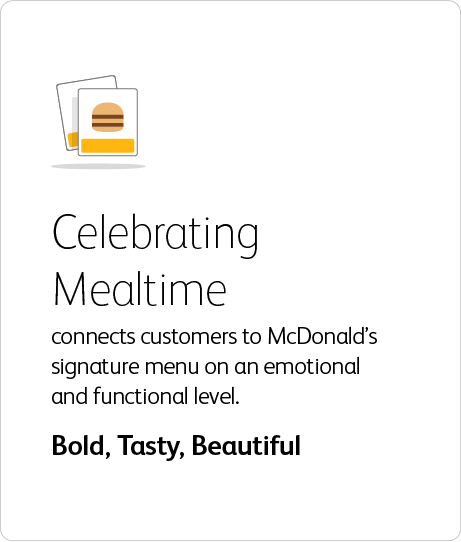
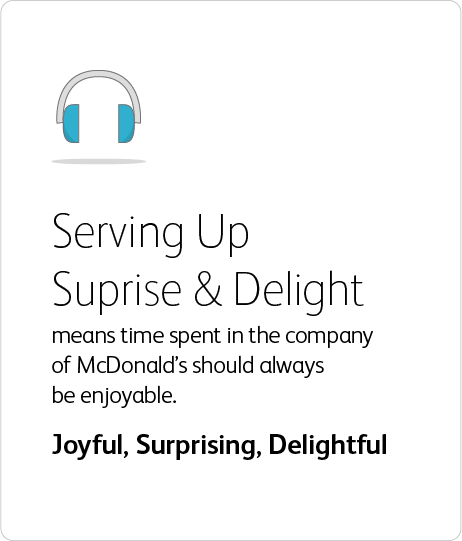
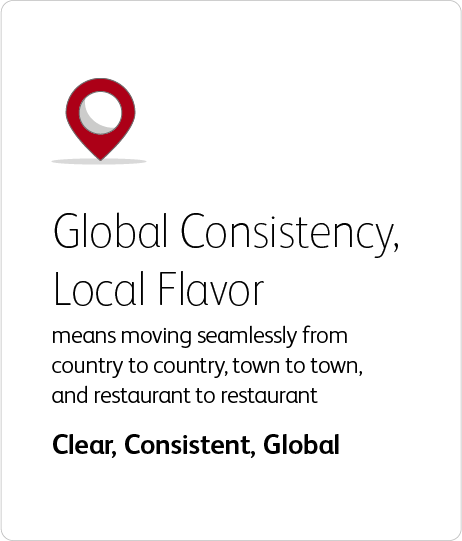
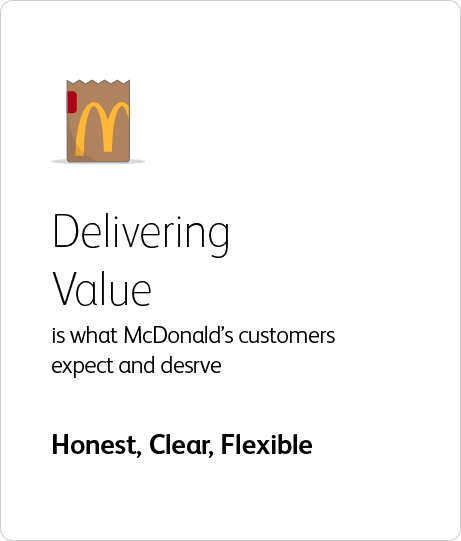
Experience Design
Customer Journey
A robust customer journey framework distills the experience into digestible elements—connecting business, product, and experience while establishing customer-first as the common vernacular for an organization. Interrogating the customer journey laid the groundwork for our design approach. We talked to McDonald’s customers from all walks of life across the world to understand their experience.
Strategy & Capabilities
Customer Journey
A robust customer journey framework distills the experience into digestible elements—connecting business, product, and experience while establishing customer-first as the common vernacular for an organization. Interrogating the customer journey laid the groundwork for our design approach. We talked to McDonald’s customers from all walks of life across the world to understand their experience.
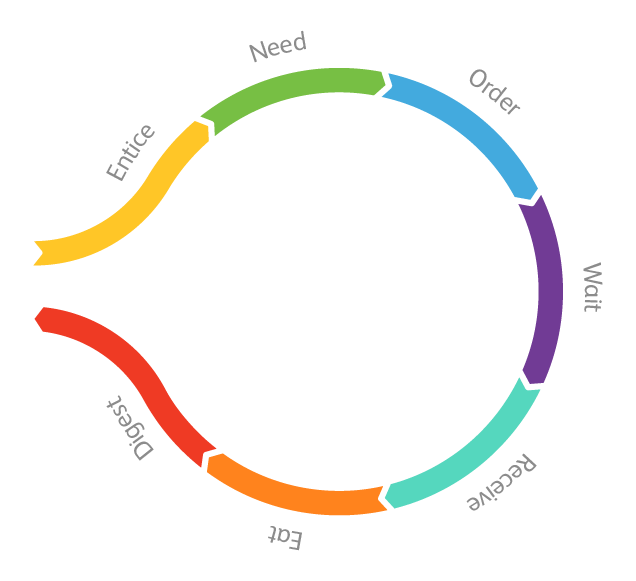
CRM Strategy
Customer Relationship
Customer Relationship
Equal parts cultural and capability driven, we helped McDonald’s shift from a one-time transactional customer relationship to a lifetime value relationship expressed through digital.
Equal parts cultural and capability driven, we helped McDonald’s shift from a one-time transactional customer relationship to a lifetime value relationship expressed through digital.
This seismic shift came down to creating a Profile for customers. The dynamic of Profile enhances customers’ experience and improves business intelligence.
This seismic shift came down to creating a Profile for customers. The dynamic of Profile enhances customers’ experience and improves business intelligence.

Business Strategy
Organizational Change:
Institutionalizing Innovation
Business Strategy
Organizational Change:
Institutionalizing Innovation
When the digital group was founded at McDonald’s, the team was comprised of existing non-digital and new employees. Method was responsible for teaching a common vernacular, collaboration tools, design artifacts, and processes to groups as broad-ranging as IT, operations, markets, digital, insights, and marketing. Over time our role evolved to onboarding new employees on the culture and inner workings of the organization and how to navigate the complexity.
When the digital group was founded at McDonald’s, the team was comprised of existing non-digital and new employees. Method was responsible for teaching a common vernacular, collaboration tools, design artifacts, and processes to groups as broad-ranging as IT, operations, markets, digital, insights, and marketing. Over time our role evolved to onboarding new employees on the culture and inner workings of the organization and how to navigate the complexity.
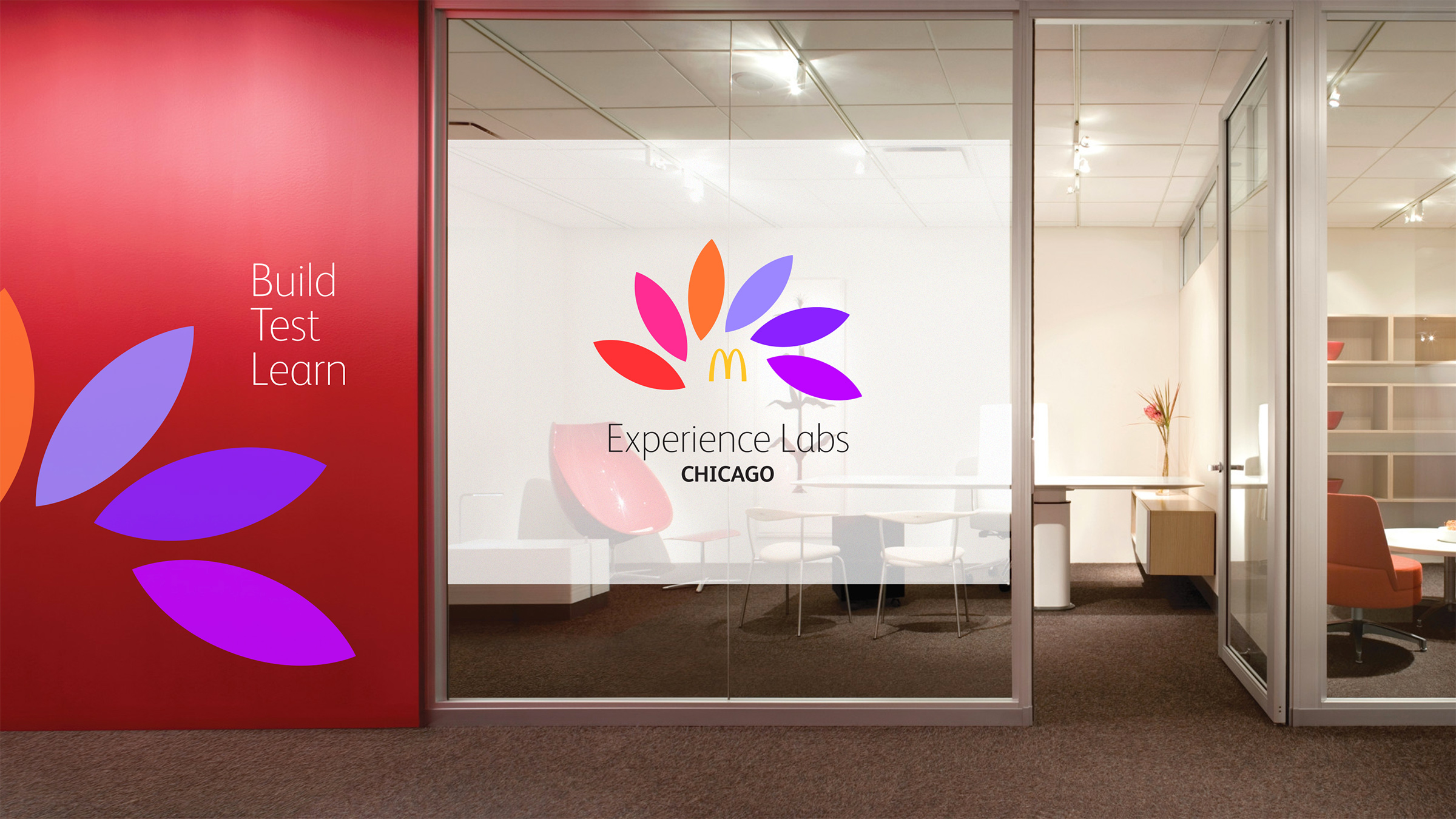
We established the role of the design team at McDonald’s both as an integrated entity within product and technology, comprising teams from both Method and McDonald’s. We defined the culture for a design team to thrive across the organization.
We established the role of the design team at McDonald’s both as an integrated entity within product and technology, comprising teams from both Method and McDonald’s. We defined the culture for a design team to thrive across the organization.
Extensive User Research
Insights & Testing
While McDonald’s had invested extensively in traditional market research there was little focus on digital. The organization had a cursory understanding of the value of design research. Over time we proved the tangible and incredible value of integrating research into the design process.
We started by conducting global research (US, China, Australia, UK) to identify opportunity areas. The research practice has evolved to rapid testing and iterating, with a sharing of learnings between product and design teams. We established a direct connection between the analytics and design team to inform each other's efforts thru A/B testing, data driven insights on customer micro interactions, and much more.
Strategy
Insights & Testing
While McDonald’s had invested extensively in traditional market research there was little focus on digital. The organization had a cursory understanding of the value of design research. Over time we proved the tangible and incredible value of integrating research into the design process.
We started by conducting global research (US, China, Australia, UK) to identify opportunity areas. The research practice has evolved to rapid testing and iterating, with a sharing of learnings between product and design teams. We established a direct connection between the analytics and design team to inform each other's efforts thru A/B testing, data driven insights on customer micro interactions, and much more.
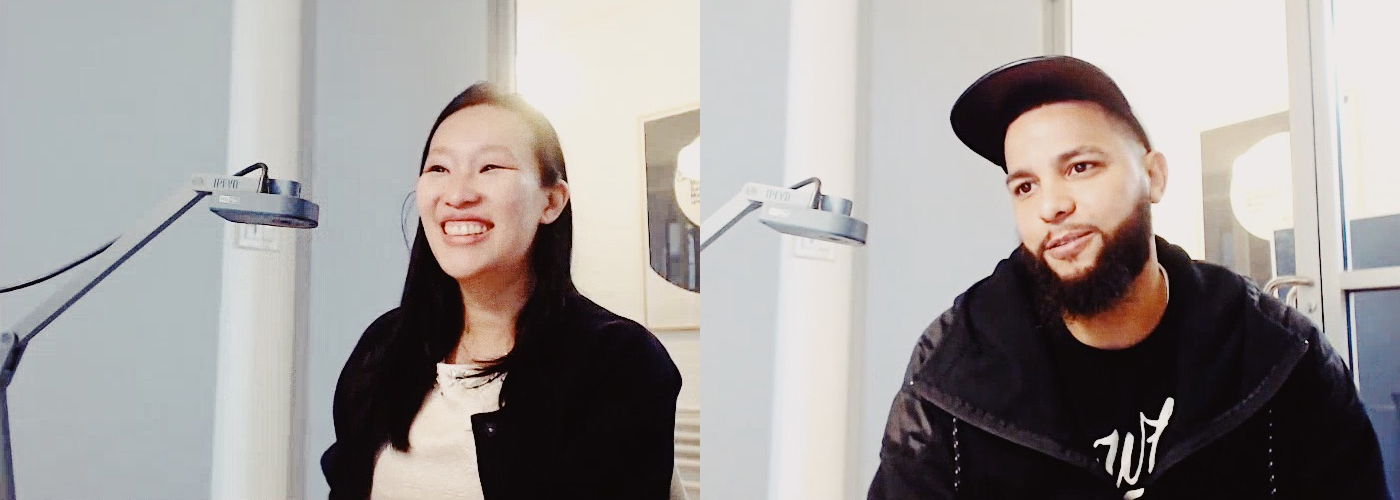

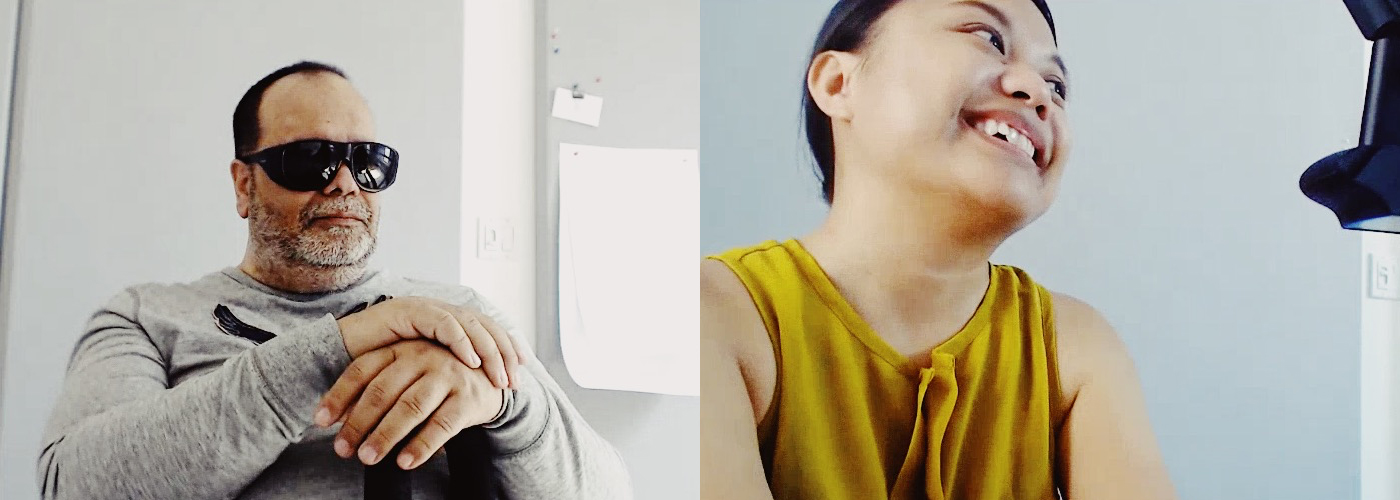
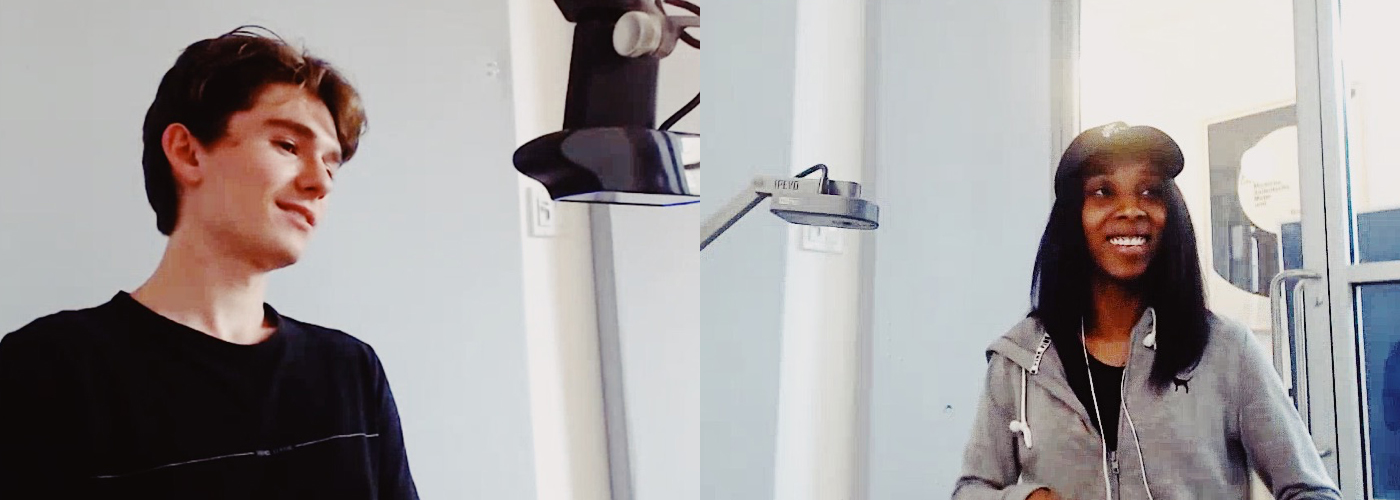
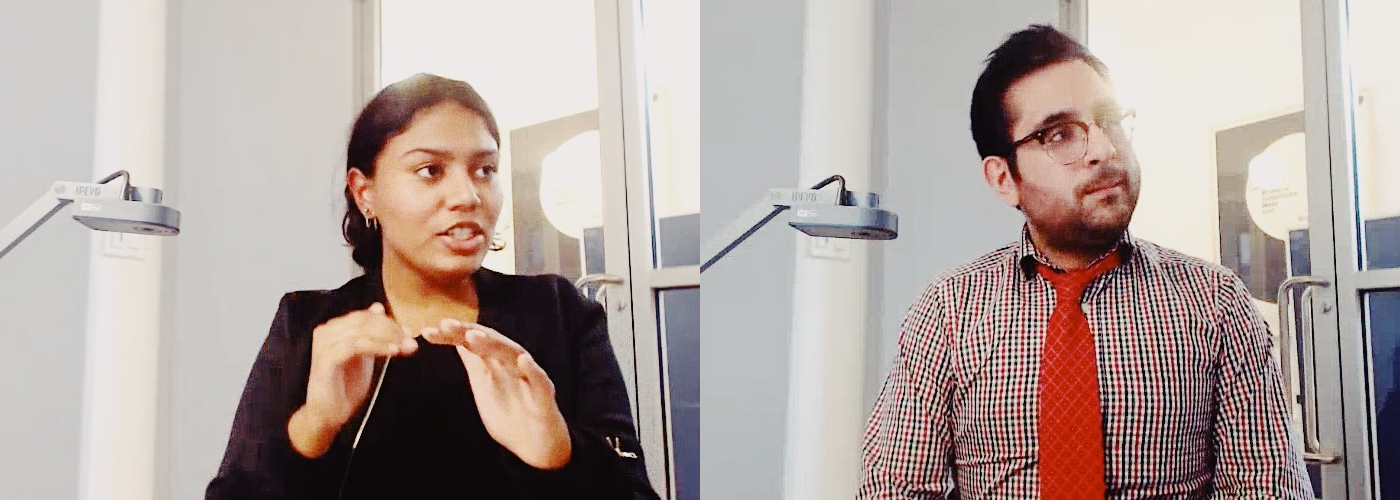
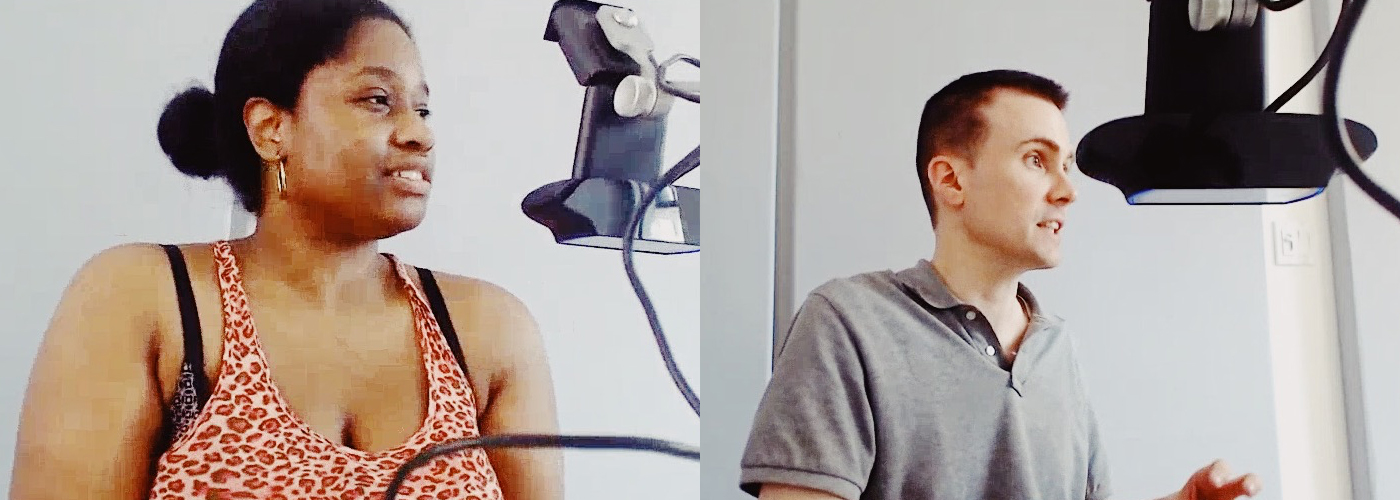
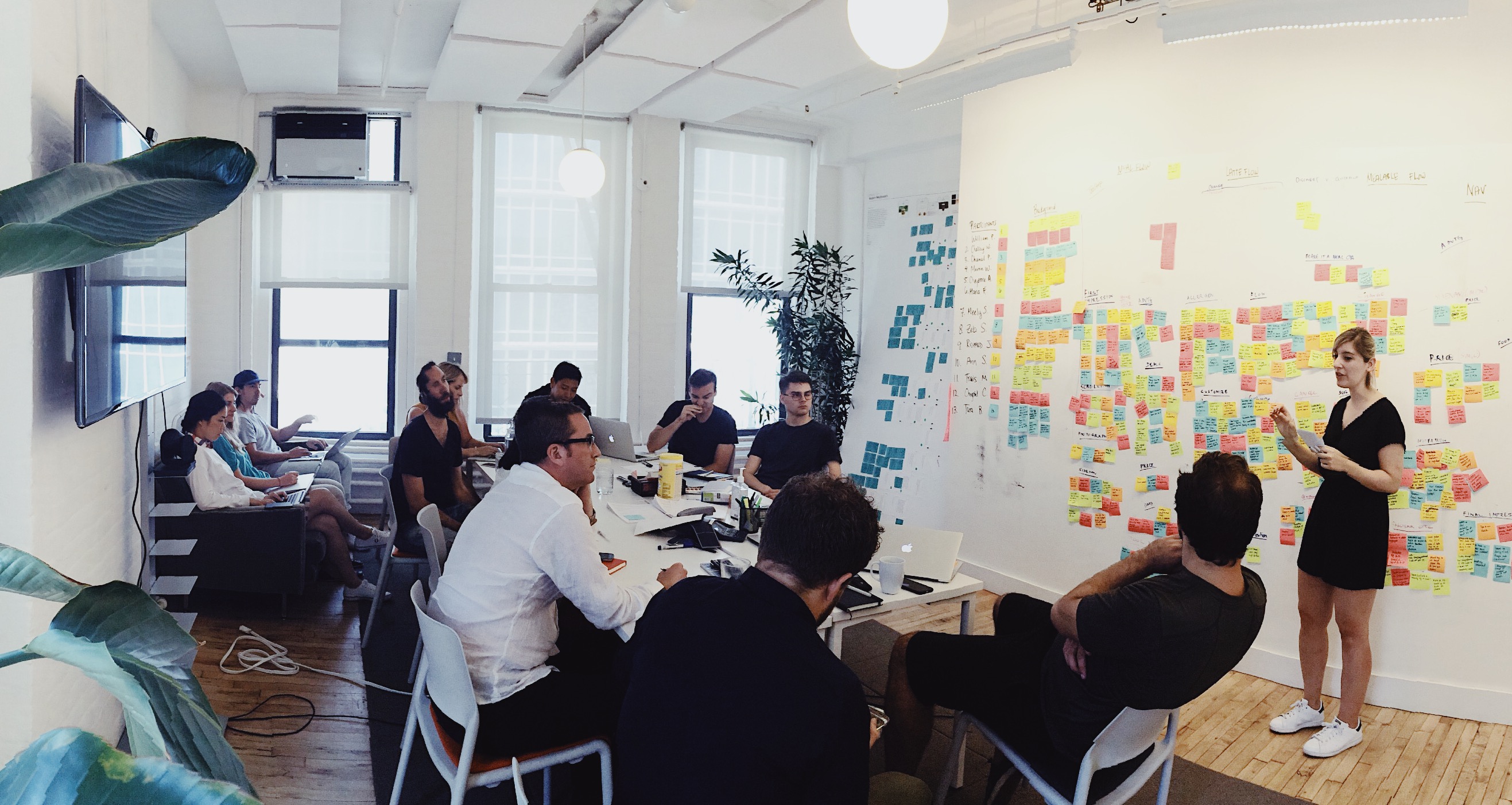

Digital Touchpoint
Global Mobile Ordering App
Starting with mobile was a natural approach, but designing the Global Mobile App required considerable diligence due to McDonald’s global scale, disparate markets, multiple ordering and pick-up contexts (Counter and Table Service, Drive-Thru, Curbside), as well as balancing business objectives with customer preferences—all while keeping the user experience and interfaces intuitive, clear, and rewarding.
Digital Touchpoint
Global Mobile Ordering App
Starting with mobile was a natural approach, but designing the Global Mobile App required considerable diligence due to McDonald’s global scale, disparate markets, multiple ordering and pick-up contexts (Counter and Table Service, Drive-Thru, Curbside), as well as balancing business objectives with customer preferences—all while keeping the user experience and interfaces intuitive, clear, and rewarding.
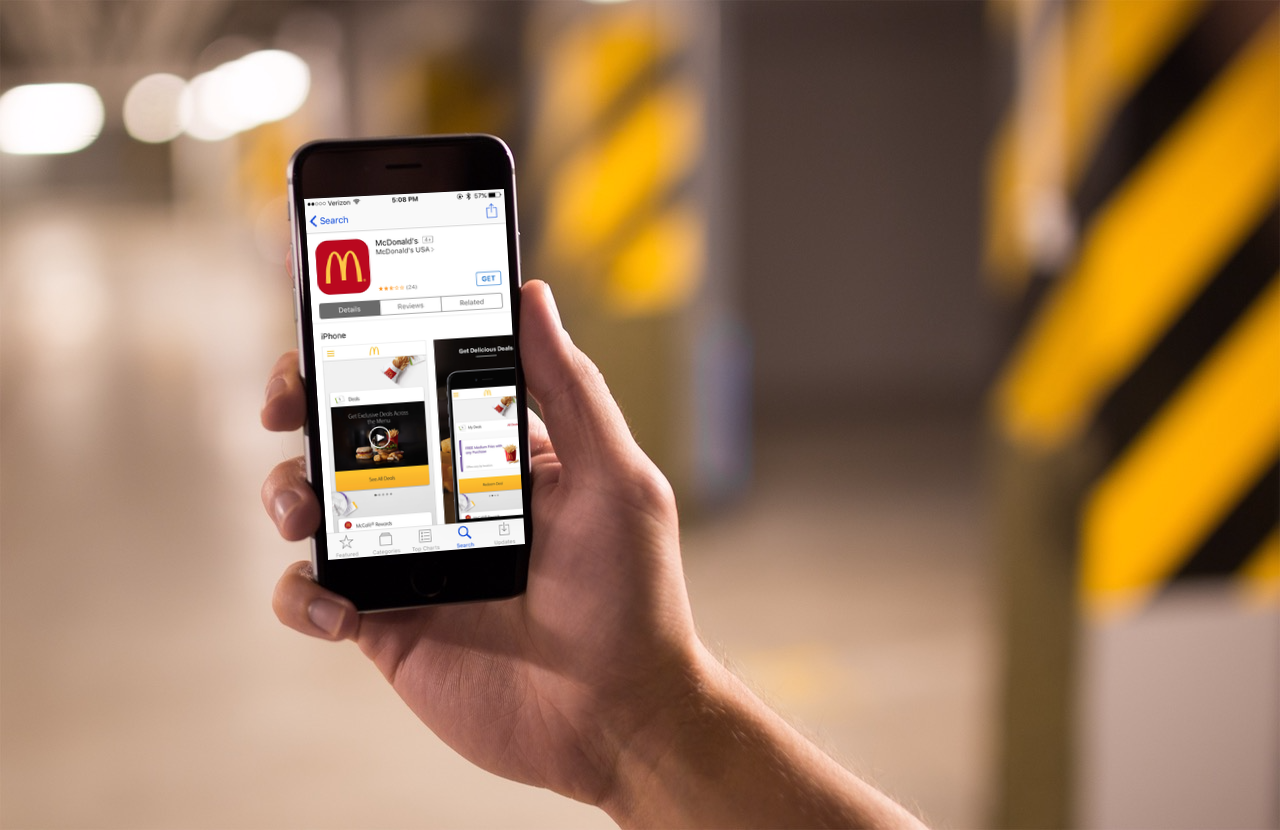
Initial Prototype
Taking the Reigns
Initial Prototype
Taking the Reigns
Our first undertaking was to consolidate anything markets had or might want to produce and in doing so replace existing disparate solutions. It would establish McDonald’s global organization as the leading market’s mobile strategies.
Our first undertaking was to consolidate anything markets had or might want to produce and in doing so replace existing disparate solutions. It would establish McDonald’s global organization as the leading market’s mobile strategies.
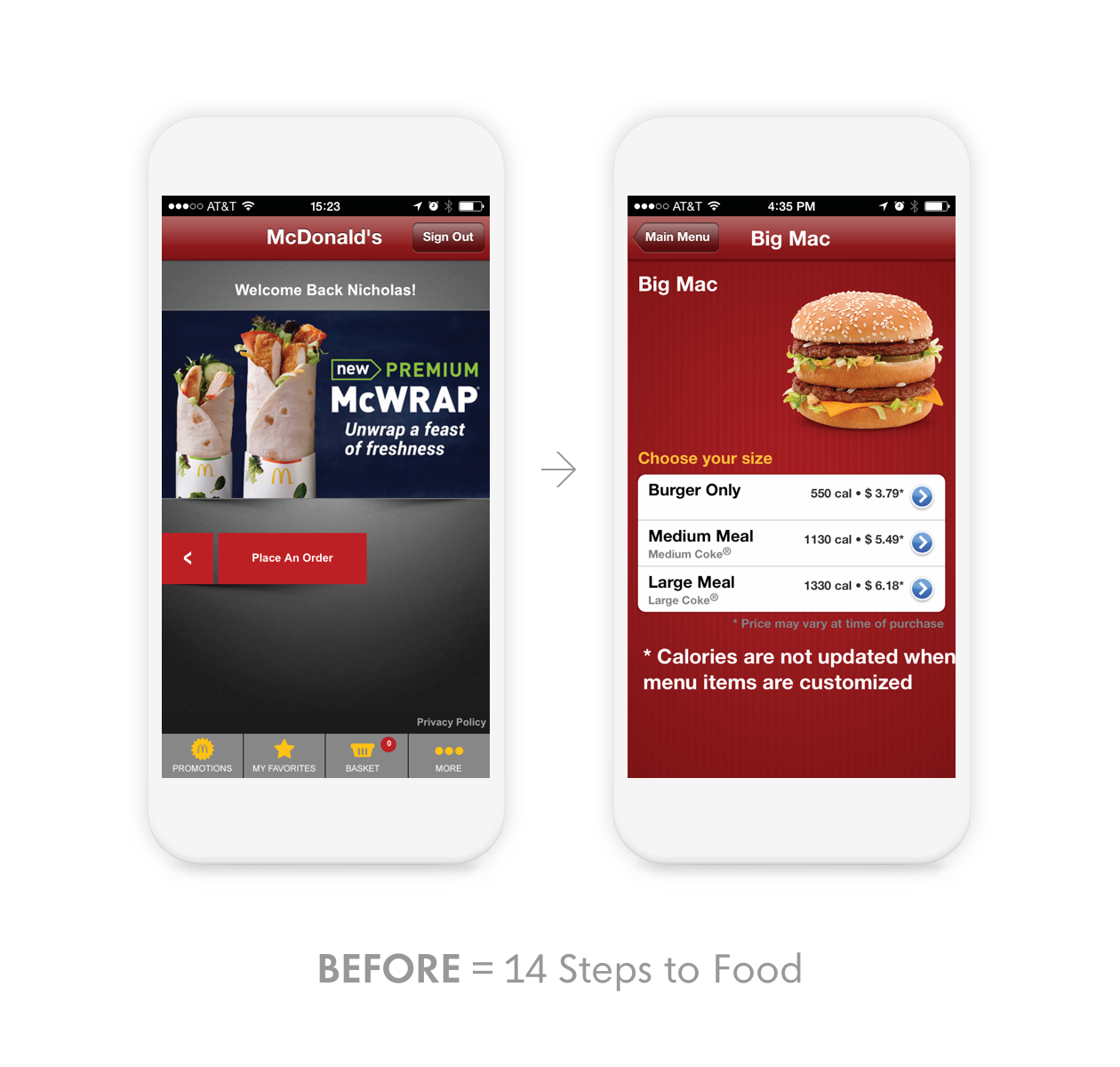
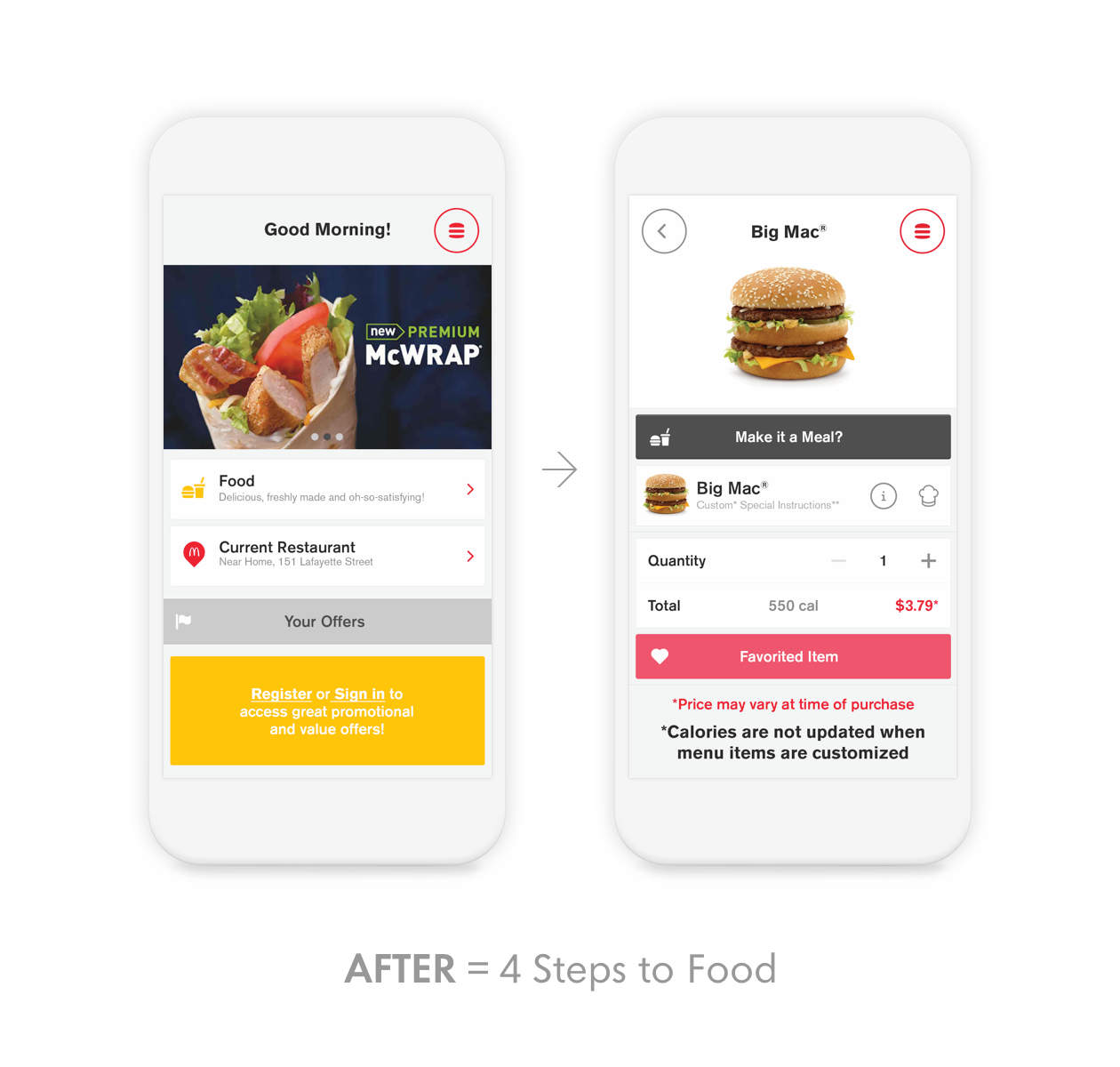
GMA 5
Thinking Omni-Channel
We shifted from an app focused on what McDonald’s wanted to offer, to what the customer would want to experience and buy. We leveraged in-market learnings and first-hand customer research to define our focus points for improvement and innovation.
We landed on a container app solution — user-centered with enough flexibility to support a wide range of market capabilities globally. It was a seismic shift for the home screen to move away from marketing content to customer content.
This experience was the first manifestation of the design system built with an eye towards the omnichannel ecosystem to come. We also guided our clients through a mature product development process.
GMA 5
Thinking Omni-Channel
We shifted from an app focused on what McDonald’s wanted to offer, to what the customer would want to experience and buy. We leveraged in-market learnings and first-hand customer research to define our focus points for improvement and innovation.
We landed on a container app solution — user-centered with enough flexibility to support a wide range of market capabilities globally. It was a seismic shift for the home screen to move away from marketing content to customer content.
This experience was the first manifestation of the design system built with an eye towards the omnichannel ecosystem to come. We also guided our clients through a mature product development process.
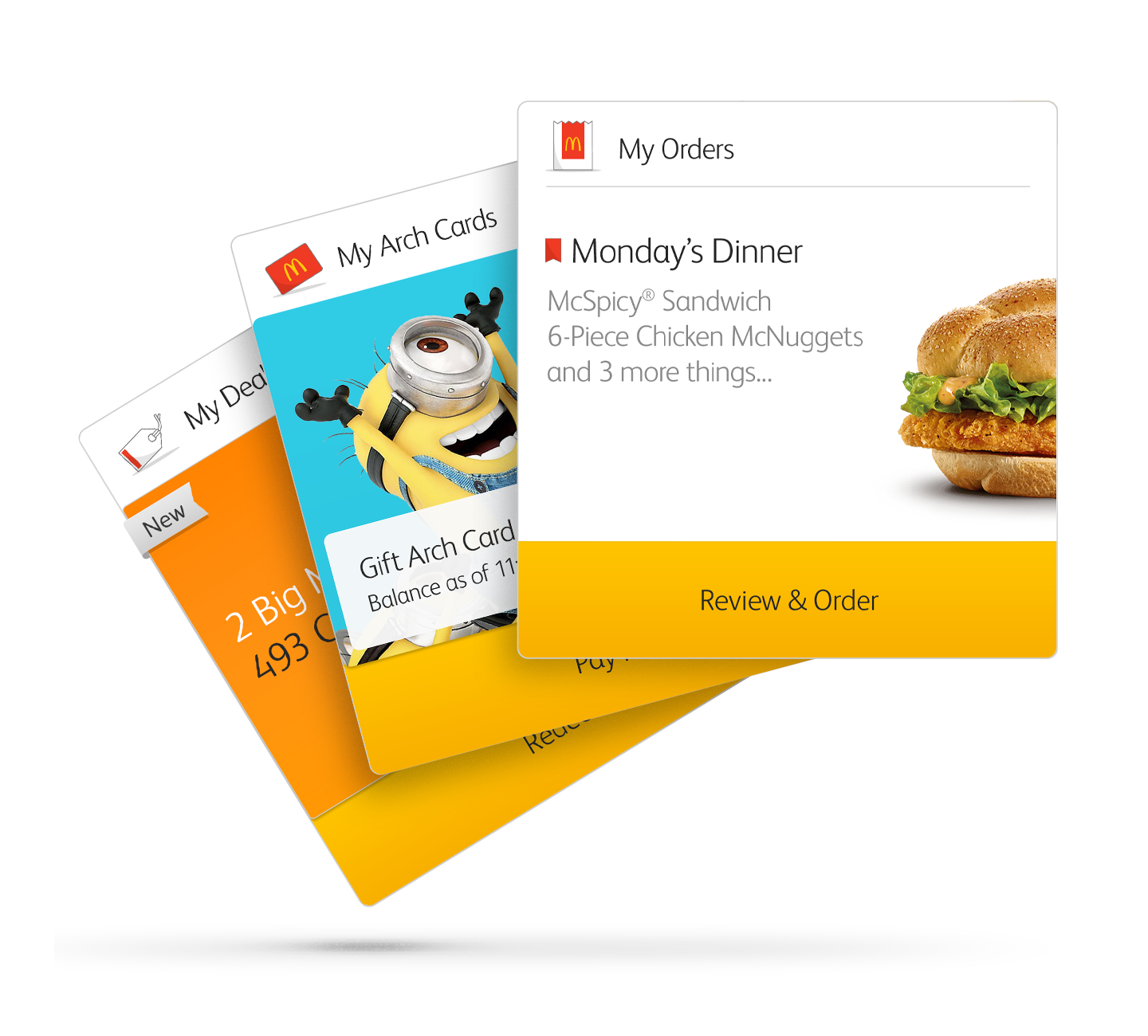
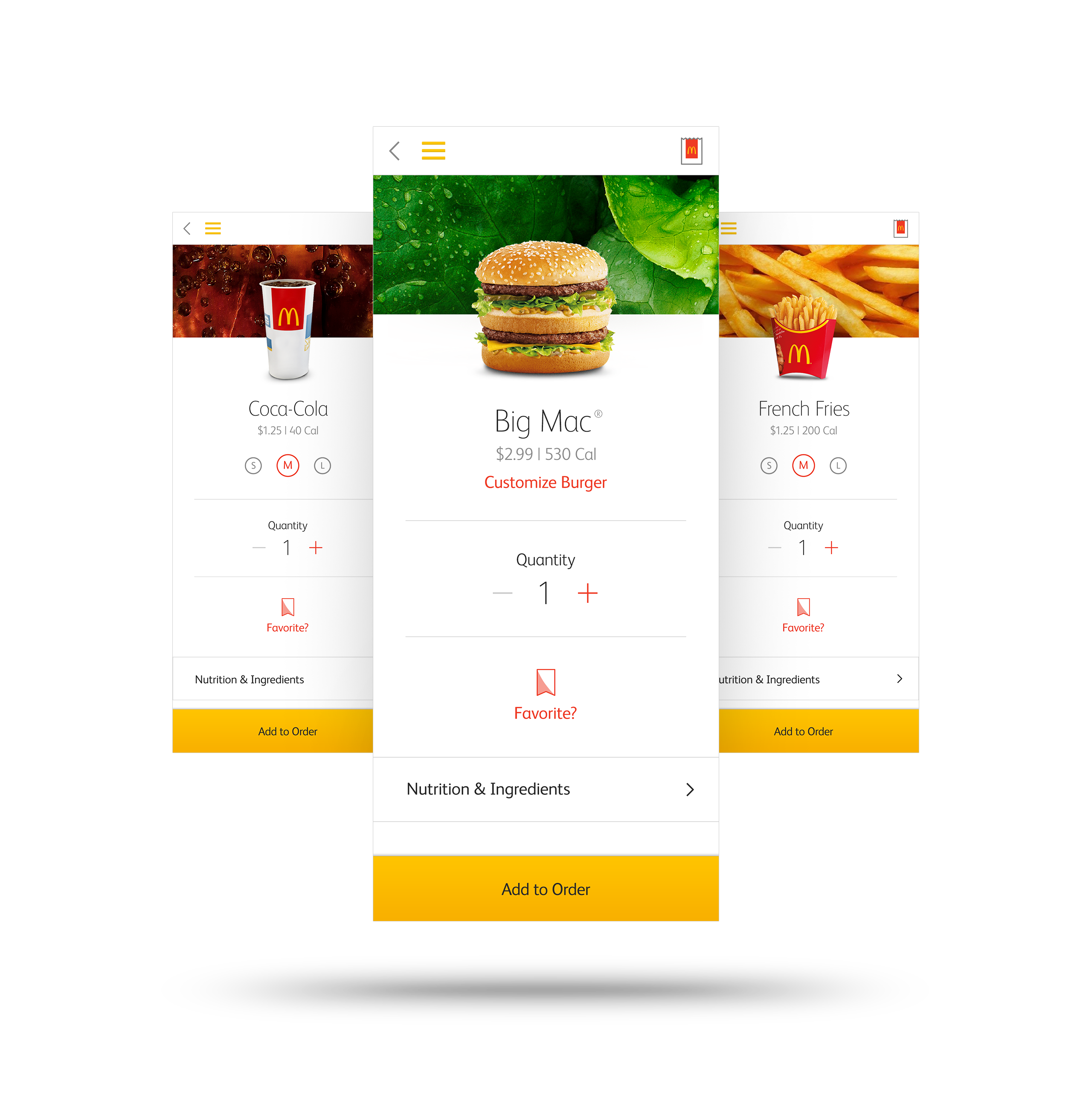
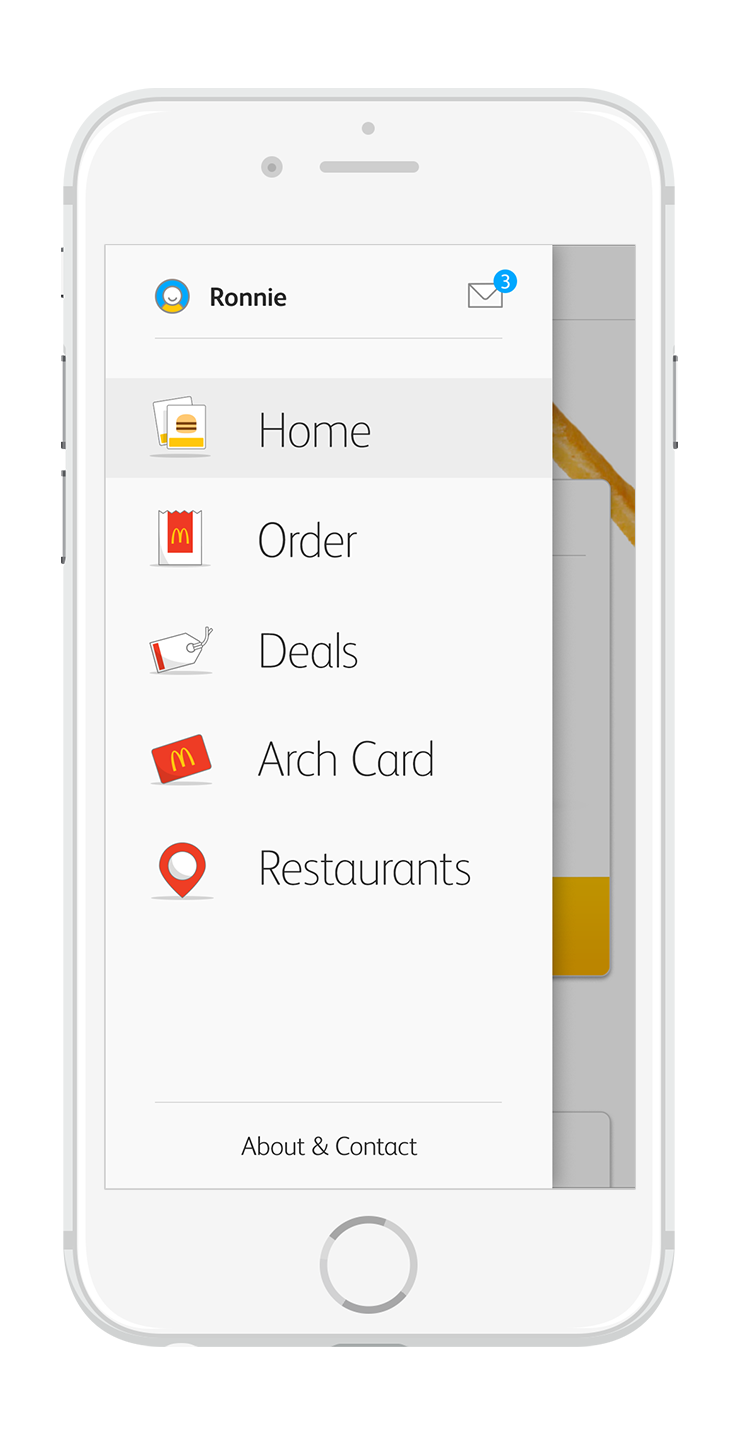
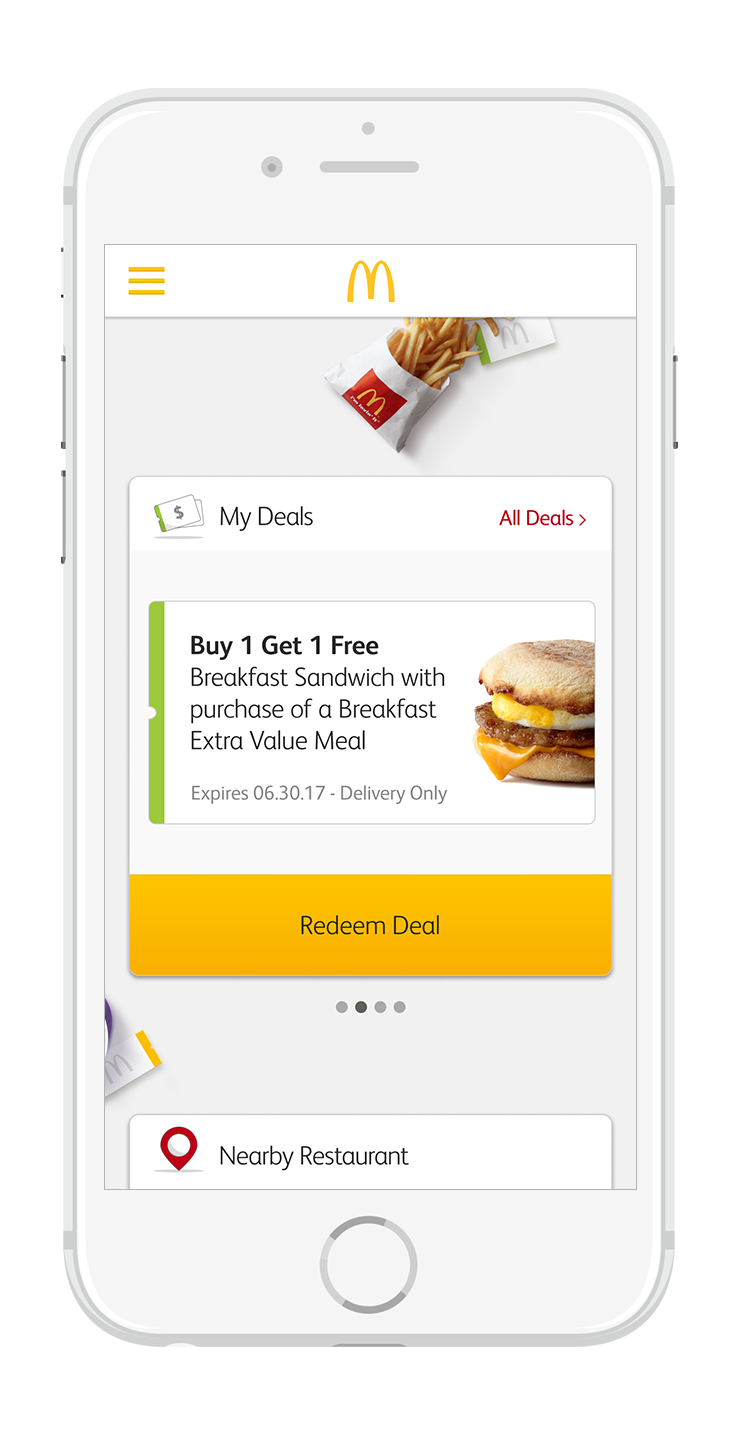
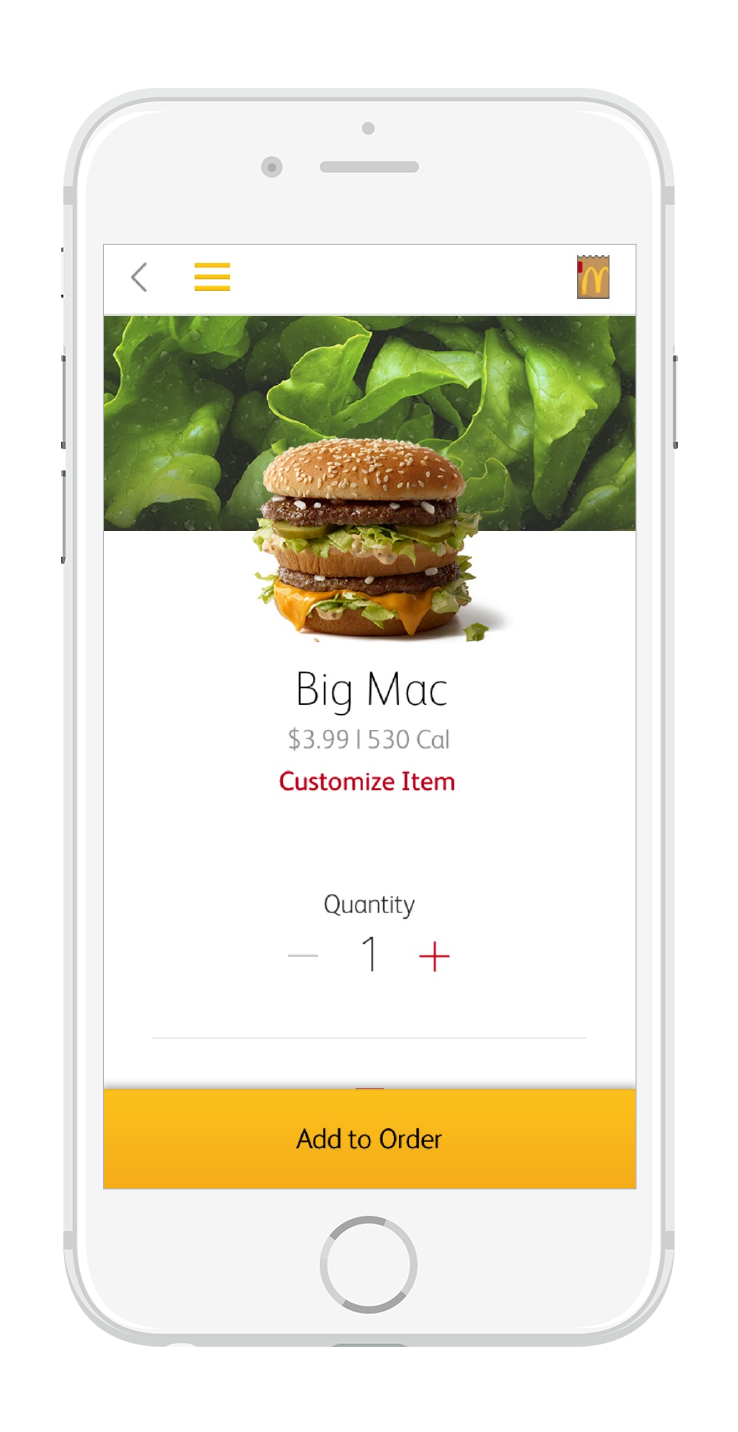
GMA Moonwalk
Mobile's Concept Car
Mobile's Concept Car
Mobile's Concept Car
While designing GMA 5, we identified opportunities to improve the overall app experience. Quantitative and qualitative data led us to a more focused, ordering-centric approach.
Without the market constraints of a container app that needed to cover everything, we aimed to create the ideal mobile ordering experience, prioritizing quick browsing and focused decision-making.
We evolved our interaction conventions to where we see applications going in 12 - 18 months.
While designing GMA 5, we identified opportunities to improve the overall app experience. Quantitative and qualitative data led us to a more focused, ordering-centric approach.
Without the market constraints of a container app that needed to cover everything, we aimed to create the ideal mobile ordering experience, prioritizing quick browsing and focused decision-making.
We evolved our interaction conventions to where we see applications going in 12 - 18 months.
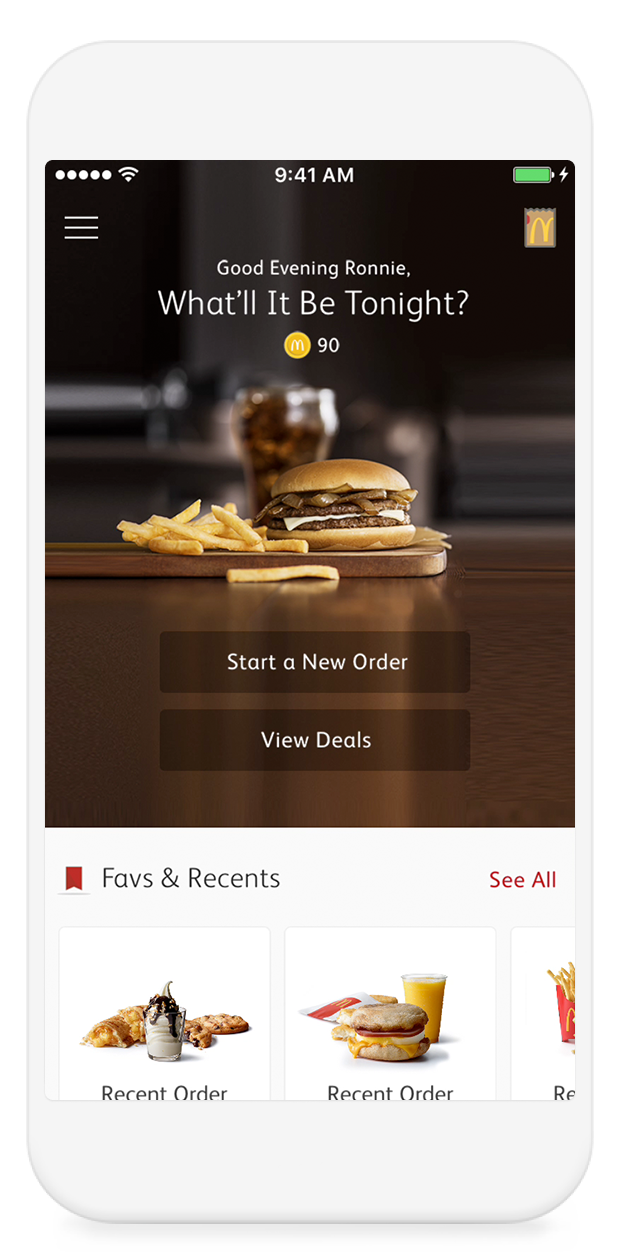
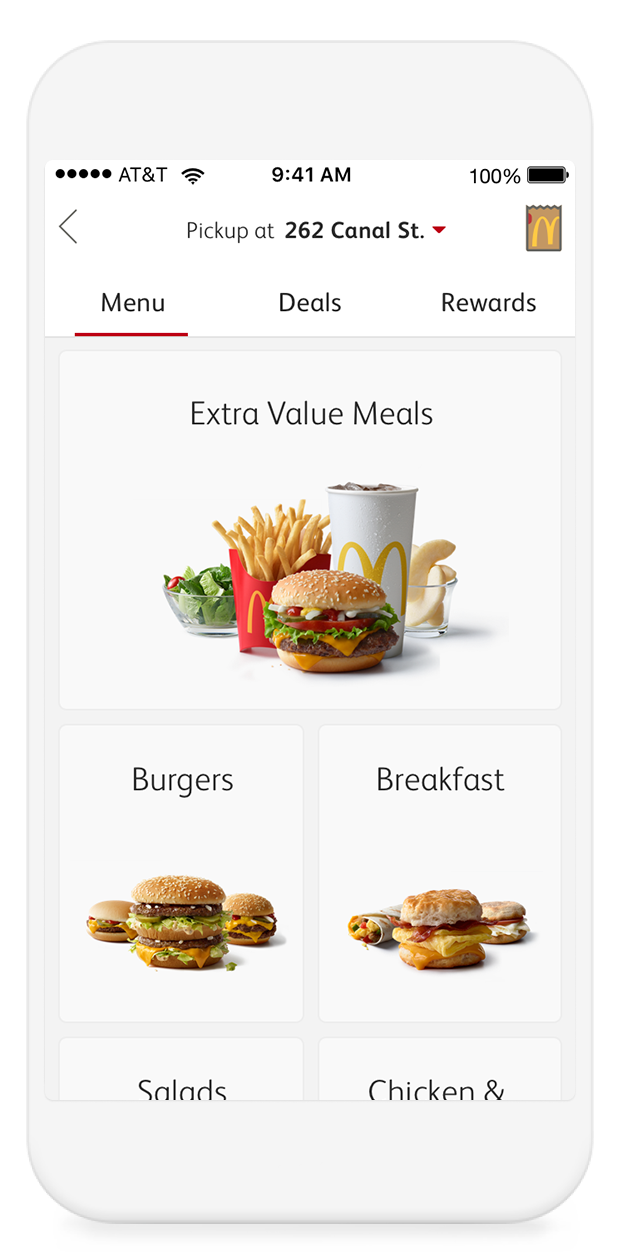
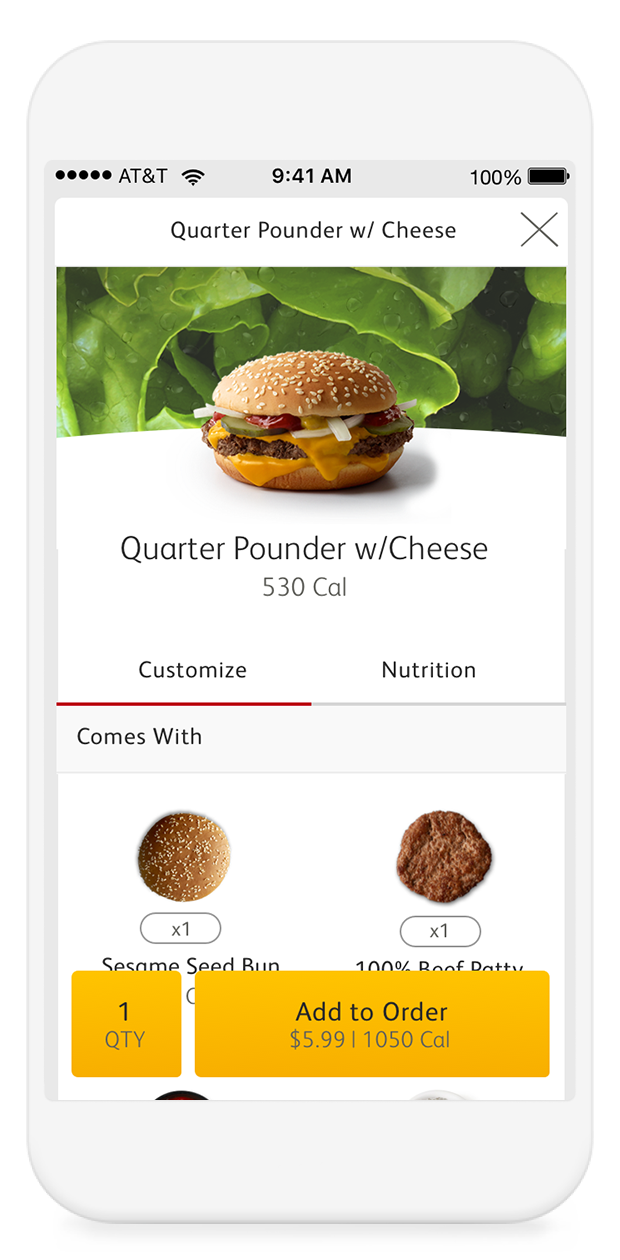

Digital Touchpoint
In-Restaurant Digital Kiosk
Digital Touchpoint
In-Restaurant Digital Kiosk
After learning the McDonald’s systems and limitations on the Mobile experience, we transferred this knowledge into a different medium, the self-ordering Kiosk. This device which serves as a digital touch point for customers, requires no download, signup or pre-planning. The devices offer an opportunity for guests to skip the banality of the front counter lines for an intimate and personalized ordering experience. These public interfaces serve customers with a sense of calm within the storefront while enabling individuals and groups to order on their own terms.
In order to deliver a best-in-class self-ordering experience we considered the various service models and touchpoints that exist within the restaurant to provide a clear and concise experience for both customers and crew. With the popularity of Kiosk growing in various markets it also provided us the opportunity to understand restaurant logistics, and help to implement new roles for crew members; getting them out from behind the front counter and into the restaurant to enhance guest experiences.
After learning the McDonald’s systems and limitations on the Mobile experience, we transferred this knowledge into a different medium, the self-ordering Kiosk. This device which serves as a digital touch point for customers, requires no download, signup or pre-planning. The devices offer an opportunity for guests to skip the banality of the front counter lines for an intimate and personalized ordering experience. These public interfaces serve customers with a sense of calm within the storefront while enabling individuals and groups to order on their own terms.
In order to deliver a best-in-class self-ordering experience we considered the various service models and touchpoints that exist within the restaurant to provide a clear and concise experience for both customers and crew. With the popularity of Kiosk growing in various markets it also provided us the opportunity to understand restaurant logistics, and help to implement new roles for crew members; getting them out from behind the front counter and into the restaurant to enhance guest experiences.
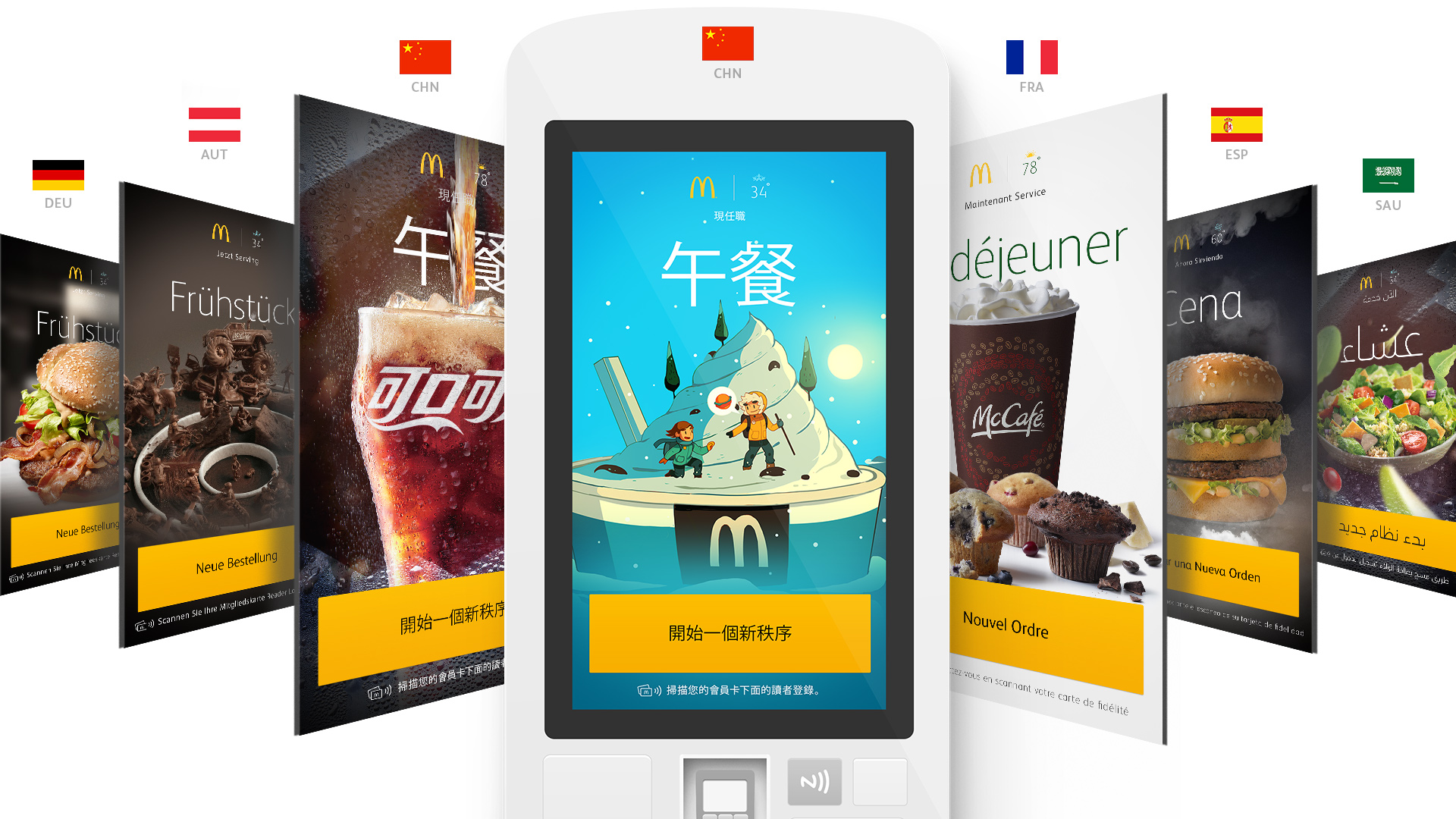
Kiosk 5
Kiosk 5
The McDonald’s Kiosk began in France over a decade ago. With the devices proven success over that time there were plans for a global expansion of the experience and while the experience was not broken, it was not best in class, confusing customers at critical points in the ordering journey.
Leveraging global usability of the devices currently in markets across the globe we narrowed our focus to surgically enhance ordering on the in market product. While the overarching visual design could not be refreshed, we created enhancements to provide a clearer ordering experience. To do this we improved the core components on the devices, while enhancing ordering flows to provide customers with a faster and clearer path to their food.
The McDonald’s Kiosk began in France over a decade ago. With the devices proven success over that time there were plans for a global expansion of the experience and while the experience was not broken, it was not best in class, confusing customers at critical points in the ordering journey.
Leveraging global usability of the devices currently in markets across the globe we narrowed our focus to surgically enhance ordering on the in market product. While the overarching visual design could not be refreshed, we created enhancements to provide a clearer ordering experience. To do this we improved the core components on the devices, while enhancing ordering flows to provide customers with a faster and clearer path to their food.
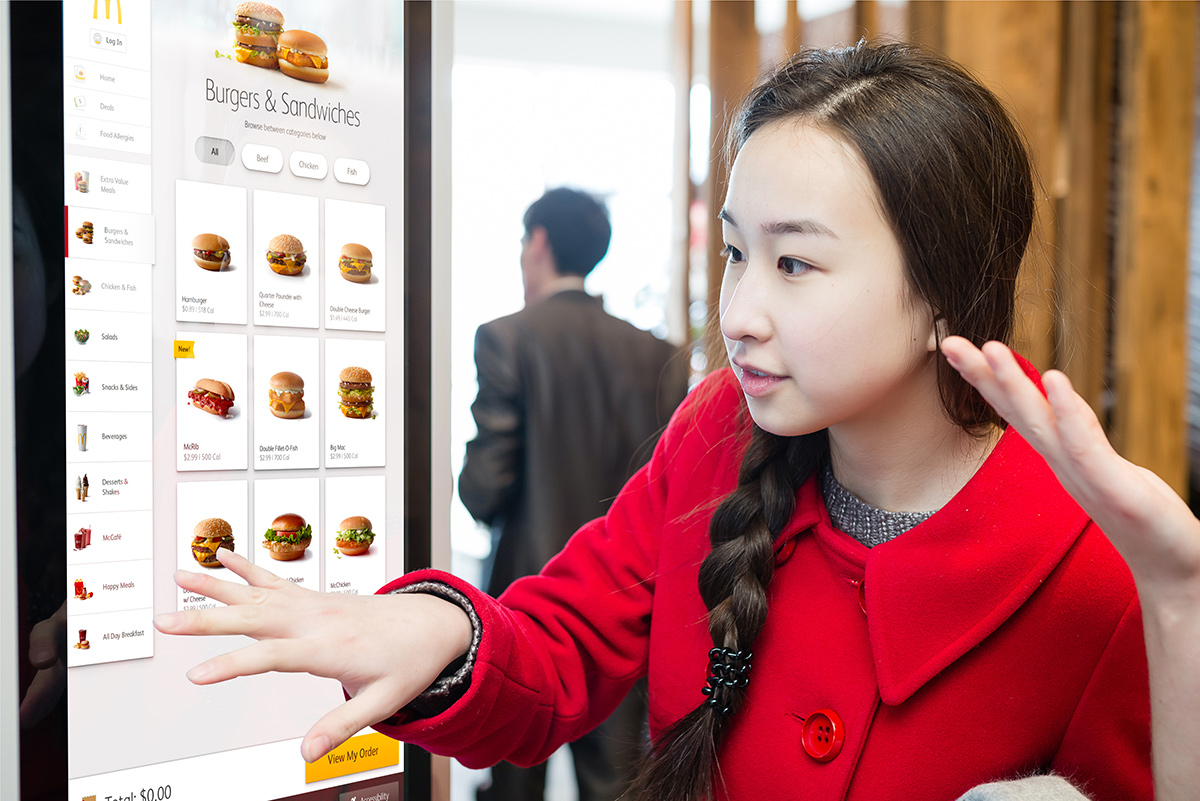
Kiosk 6
Kiosk 6
We then utilized our deep knowledge of the previous version of Kiosk to bring to life new concepts for an in-store self-ordering device. We leveraged a design process that enabled us to validate our designs iteratively through user testing concurrent to design sprints to provide the team insights and deliver customers an intuitive public ordering device. What we created is an elevated customer experience that is familiar, refreshing, inviting, and efficient at facilitating quick ordering. Collaborating with the operations, merchandising, and product teams, we created a streamlined and flexible customer experience with a refined visual system to work across the globe.
We then utilized our deep knowledge of previous version of Kiosk to bring to life new concepts for an in-store self-ordering device. We leveraged a design process which enabled us to validate our designs iteratively through user testing concurrent to design sprints to provide the team insights and deliver customers an intuitive public ordering device. What we created is an elevated customer experience that is familiar, refreshing, inviting, and efficient at facilitating quick ordering. Collaborating with the operations, merchandising and product teams, we created a streamlined and flexible customer experience with a refined visual system to work across the globe.
Kiosk is the most public and accessible channel
Requires no download or sign up
It’s the only channel where the customer is not using their own device
Due to the form factor it is a particularly public device
A kiosk is the most public and accessible channel
Requires no download or sign up
It’s the only channel where the customer is
not using their own device
Due to the form factor, it is a particularly public device
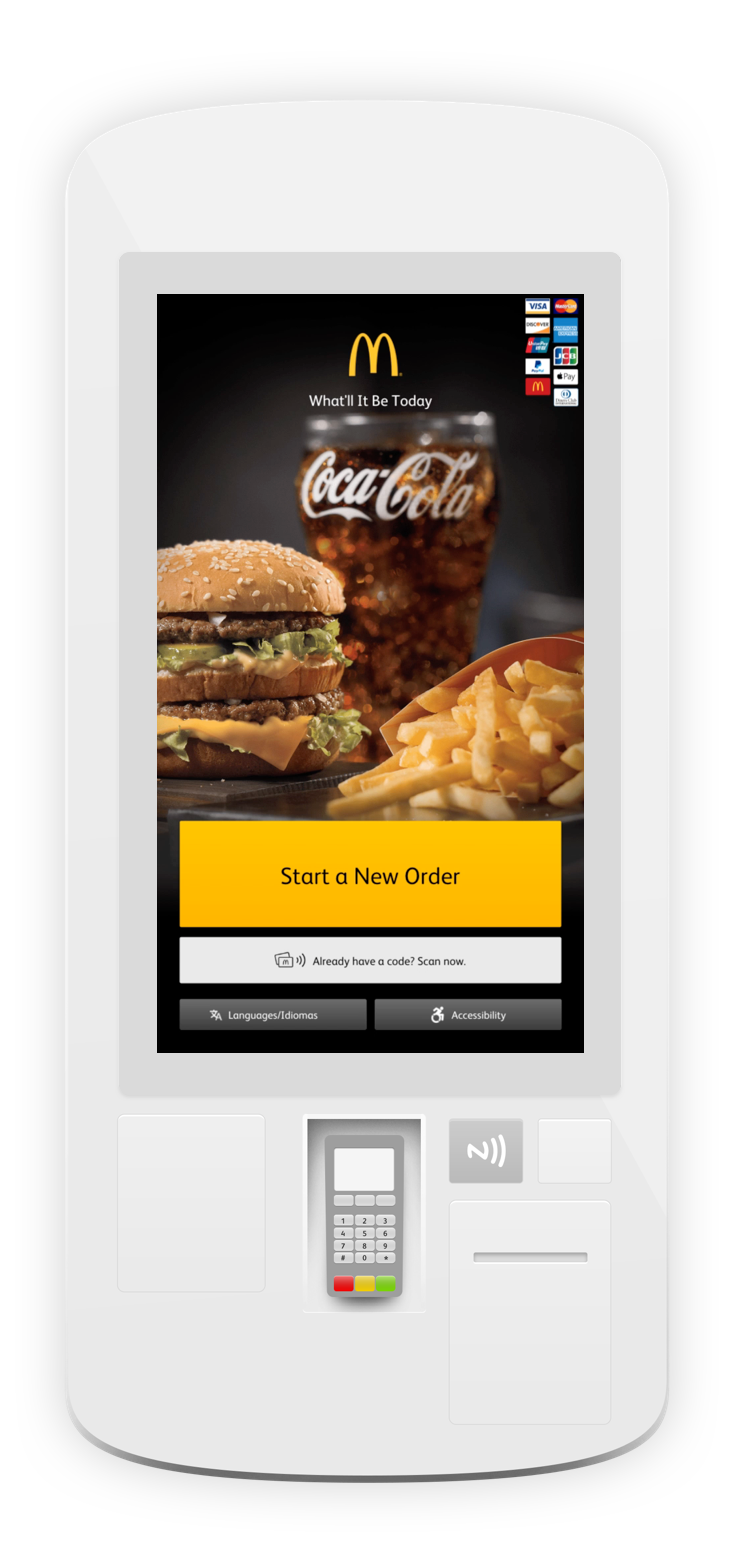
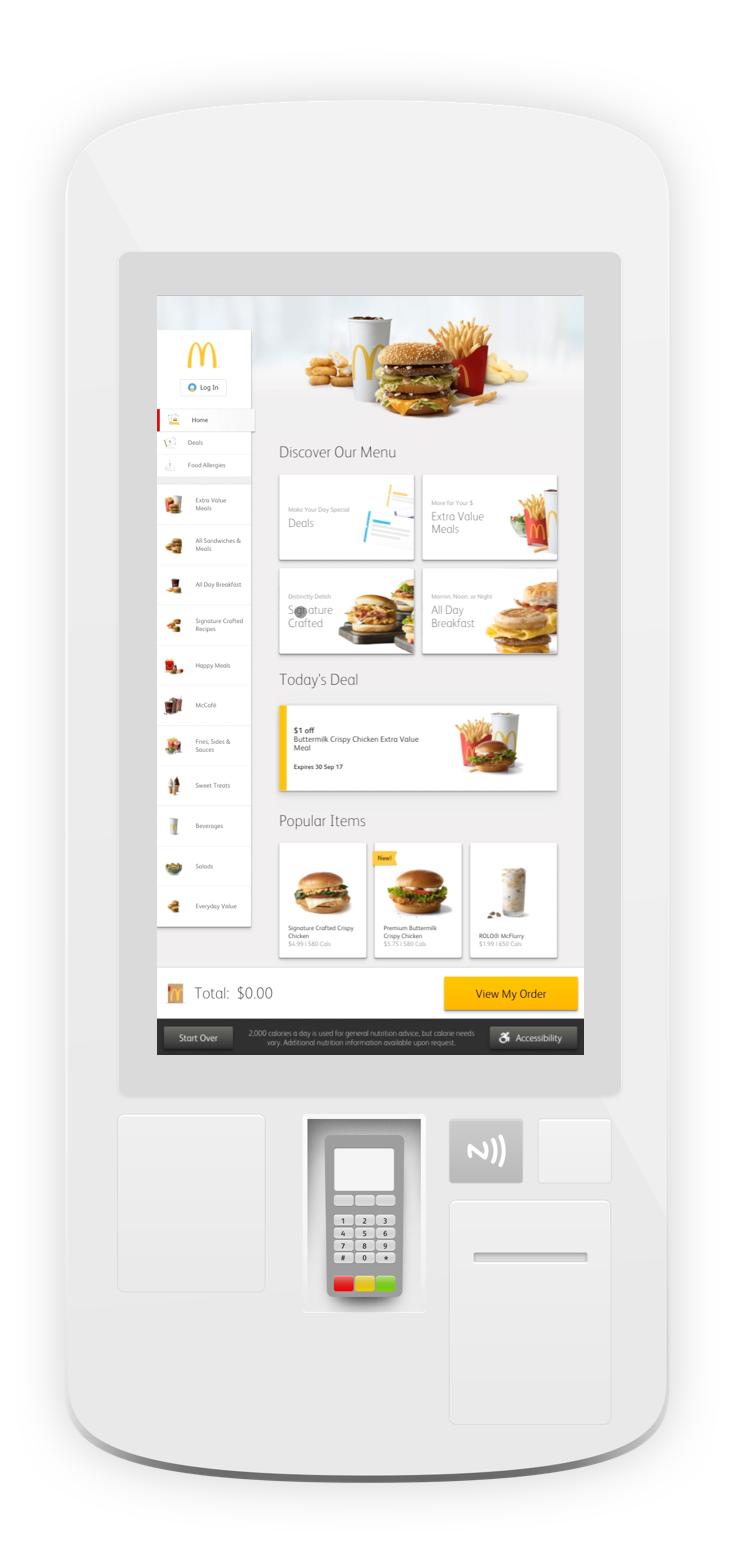
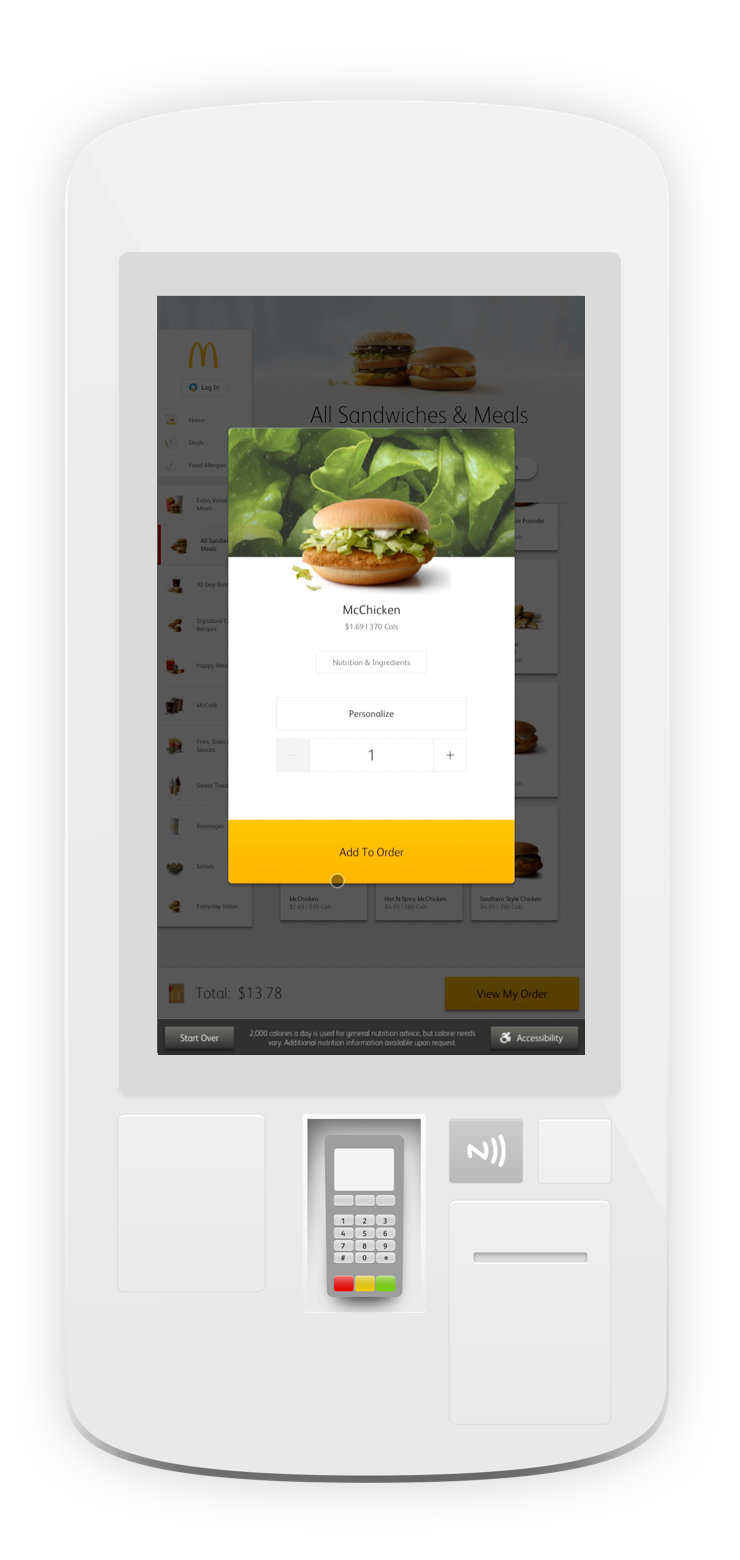
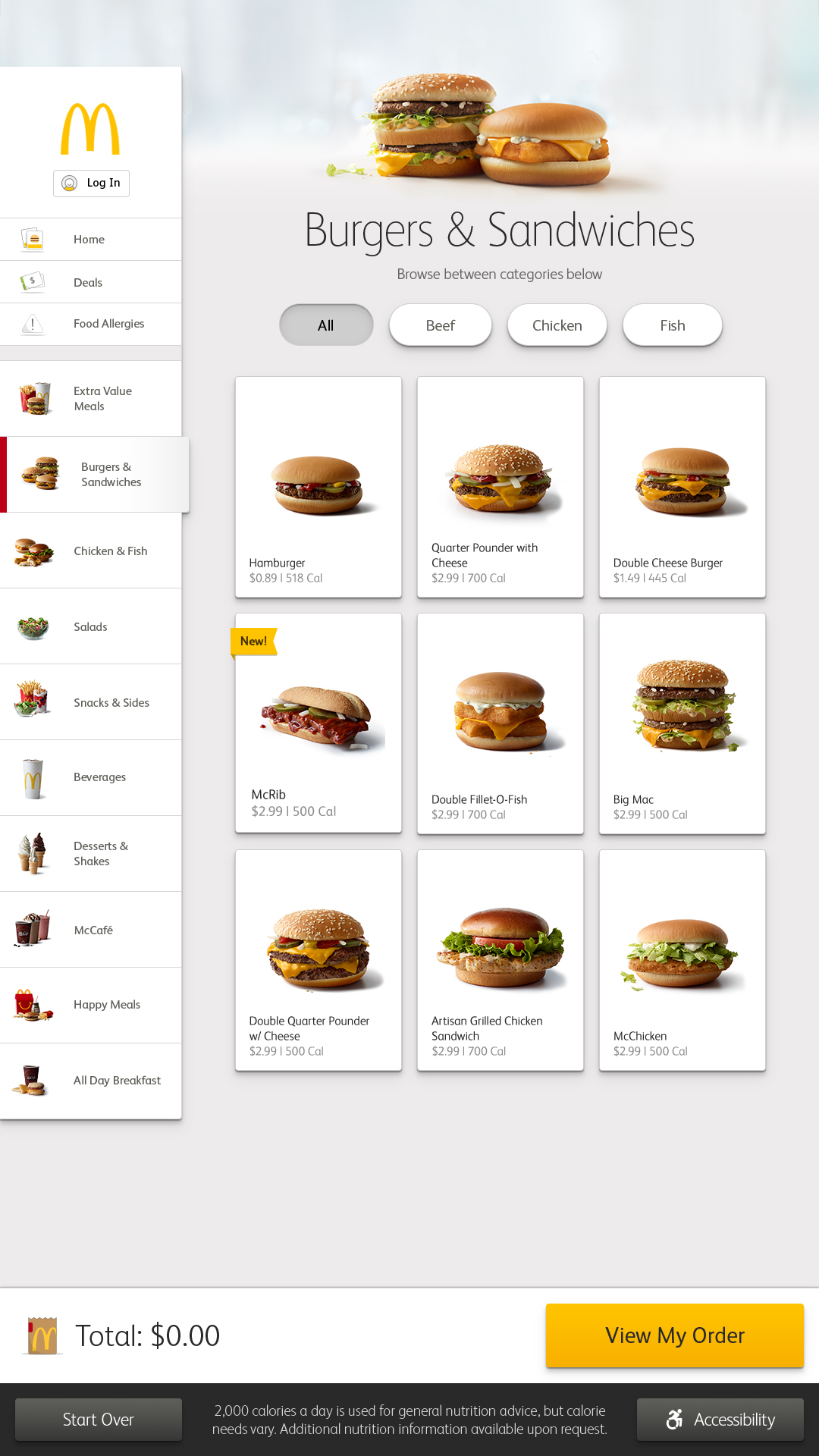

Kiosk Vision
Kiosk Vision
Working through the constraints of Kiosks version 5 and 6 the team gathered rich insight into opportunities to provide customers and franchisees with enhanced ordering and merchandising opportunities within the restaurant platforms by optimizing both design and technology. We designed solutions to begin to push the ideal state of Kiosk ordering by enhancing restaurant service offerings for customers.
Working through the constraints of Kiosks version 5 and 6 the team gathered rich insight into opportunities to provide customers and franchisees with enhanced ordering and merchandising opportunities within the restaurant platforms by optimizing both design and technology. We designed solutions to begin to push the ideal state of Kiosk ordering by enhancing restaurant service offerings for customers.
Group Ordering
Profile and Preferences
Featured Items
Recommendations
Loyalty Program
Saved Payments
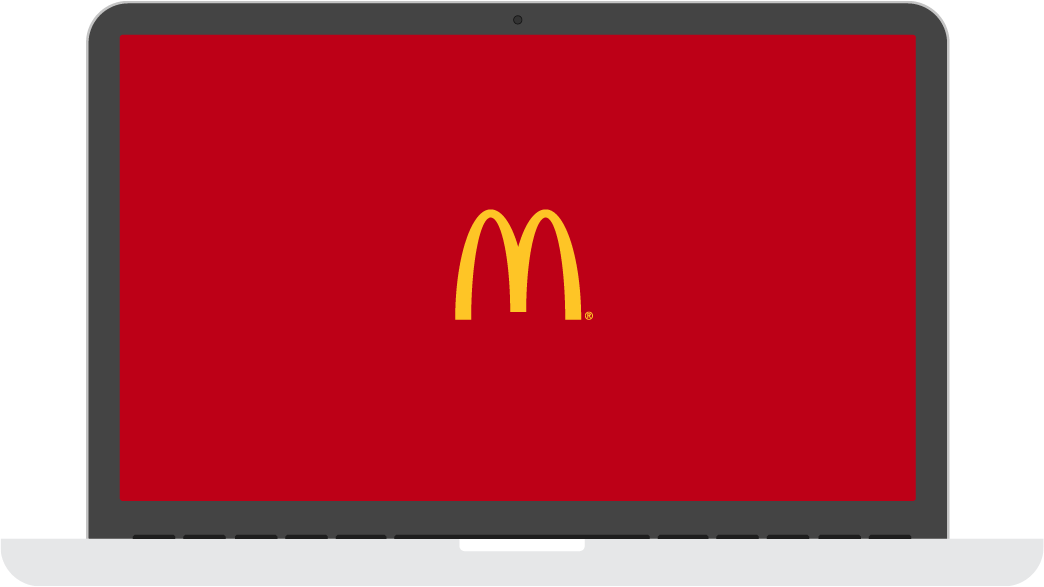
Digital Touchpoint
Global Web Experience
The McDonald’s web property plays a distinct role in the broader omnichannel experience. Besides allowing customers to make online orders from several different devices, the web is also the home of all things McDonald’s. It’s the place where customers learn about the products (old and new), promotions and deals, and McDonald’s as a brand.
Digital Touchpoint
Global Web Experience
The McDonald’s web property plays a distinct role in the broader omnichannel experience. Besides allowing customers to make online orders from several different devices, the web is also the home of all things McDonald’s. It’s the place where customers learn about the products (old and new), promotions and deals, and McDonald’s as a brand.
Method saw the opportunity to approach the web as an ecosystem of individual properties connected by a common thread: the customer’s profile. Framing this ecosystem around the customer and their needs allows us to create experiences tailored to our customers—where they are, what they need, and when they need it. Through this ecosystem, a customer is quickly guided across properties (McDonald’s owned or not), all in the interest of helping the customer achieve their goal.
Method saw the opportunity to approach the web as an ecosystem of individual properties connected by a common thread: the customer’s profile. Framing this ecosystem around the customer and their needs allows us to create experiences tailored to our customers—where they are, what they need, and when they need it. Through this ecosystem, a customer is quickly guided across properties (McDonald’s owned or not), all in the interest of helping the customer achieve their goal.
Web 5
Web 5
Online ordering is the main goal for McDonald’s on the web. Various markets created their own one-off order delivery solutions with some success, which uncovered strong demand for online ordering, but it also fragmented the McDonald’s online ecosystem into a number off market solutions. Together with Global Digital, Method helped design a unified global web solution that met specific market solutions, and that also integrated seamlessly with the rest of the channels such as GMA and Kiosk.
We began by establishing a site-wide infrastructure and design patterns to support ordering and other account-based functionality. As a baseline to build the Global Web Solution, Method inherited an existing web template that had been built as a traditional marketing experience. This meant that the existing web template had never considered the needs of ordering functionality such as a profile or a bag.
Online ordering is the main goal for McDonald’s on the web. Various markets created their own one-off order delivery solutions with some success, which uncovered strong demand for online ordering, but it also fragmented the McDonald’s online ecosystem into a number off market solutions. Together with Global Digital, Method helped design a unified global web solution that met specific market solutions, and that also integrated seamlessly with the rest of the channels such as GMA and Kiosk.
We began by establishing a site-wide infrastructure and design patterns to support ordering and other account-based functionality. As a baseline to build the Global Web Solution, Method inherited an existing web template that had been built as a traditional marketing experience. This meant that the existing web template had never considered the needs of ordering functionality such as a profile or a bag.
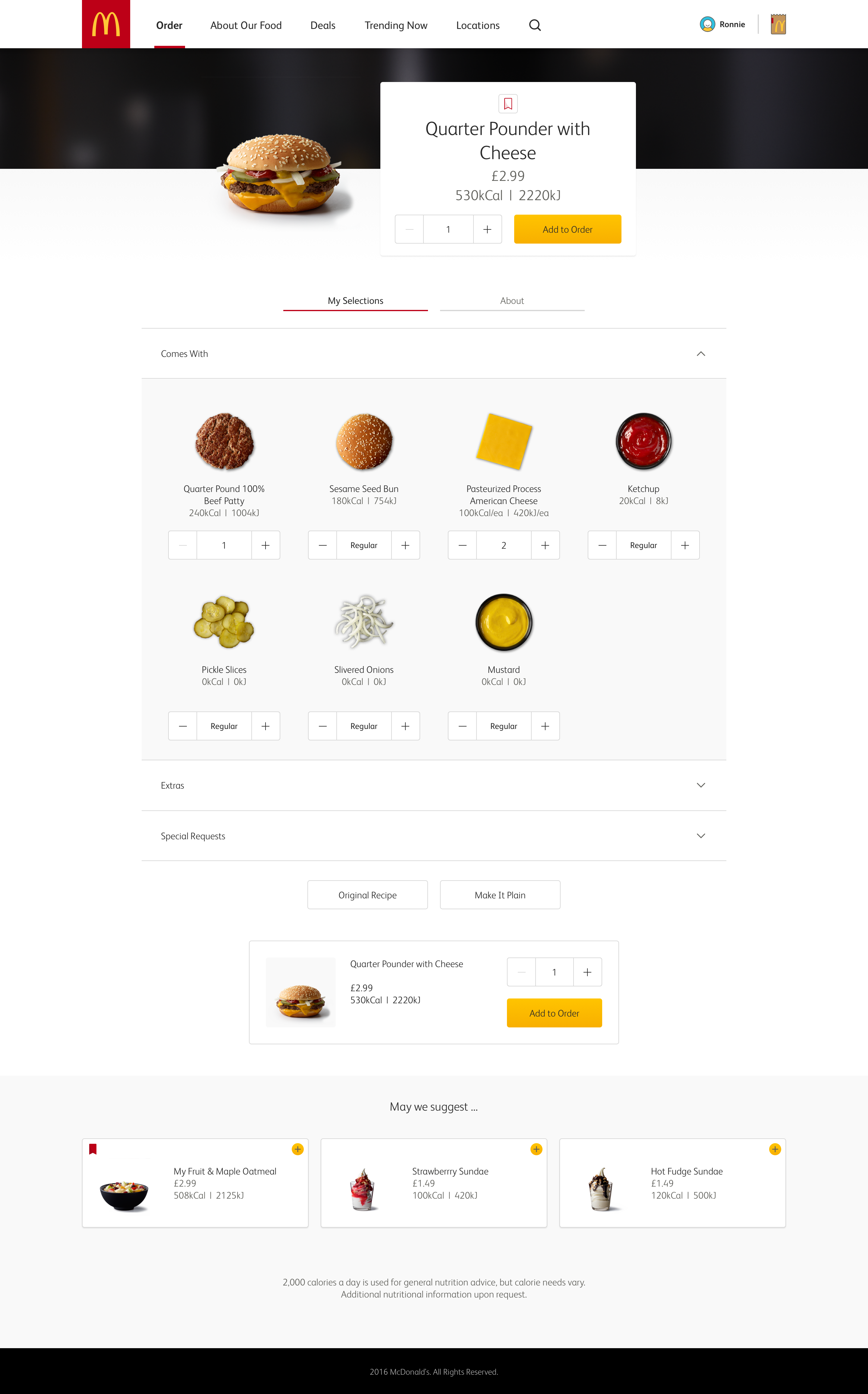
The Method Team
The Method Team
Visual
Steve Wake
Adam Augustyn
Taylor Cole
David Toro
Misa Rodriguez Valenzuela
Eli VanAlsburg
Baykal Askalar
Belen Tenorio
Rosie Ferris
Piet Aukmann
Helen Jo Yo Kim
Kendra Wu
Visual
Steve Wake
Adam Augustyn
Taylor Cole
David Toro
Misa Rodriguez Valenzuela
Eli VanAlsburg
Baykal Askalar
Belen Tenorio
Rosie Ferris
Piet Aukmann
Helen Jo Yo Kim
Kendra Wu
UX
Nick Evans
Diego Rioja
Jennifer Weng
Jacob Napolione Johnson
Janice Ahn
Mirte Becker
Livia Veneziano
Jesper Bröring
Viktor Kim
Anna Farell
UX
Nick Evans
Diego Rioja
Jennifer Weng
Jacob Napolione Johnson
Janice Ahn
Mirte Becker
Livia Veneziano
Jesper Bröring
Viktor Kim
Anna Farell
Tech
Kyle Crouse
Chris Piuggi
Jason Smith
Ben Miller
Lauren Parkos
Ed Hicks
Ron Roseman
Tech
Kyle Crouse
Chris Piuggi
Jason Smith
Ben Miller
Lauren Parkos
Ed Hicks
Ron Roseman
Account + Other
Reema Pinto
Lauren Cooper
Jon Karlin
Matt Helland
Garret Pietrocola
Jessica Danner
Account + Other
Reema Pinto
Lauren Cooper
Jon Karlin
Matt Helland
Garret Pietricola
Jessica Danner

Featured Projects

Cinema Rodrigo Film IllustrationIllustration
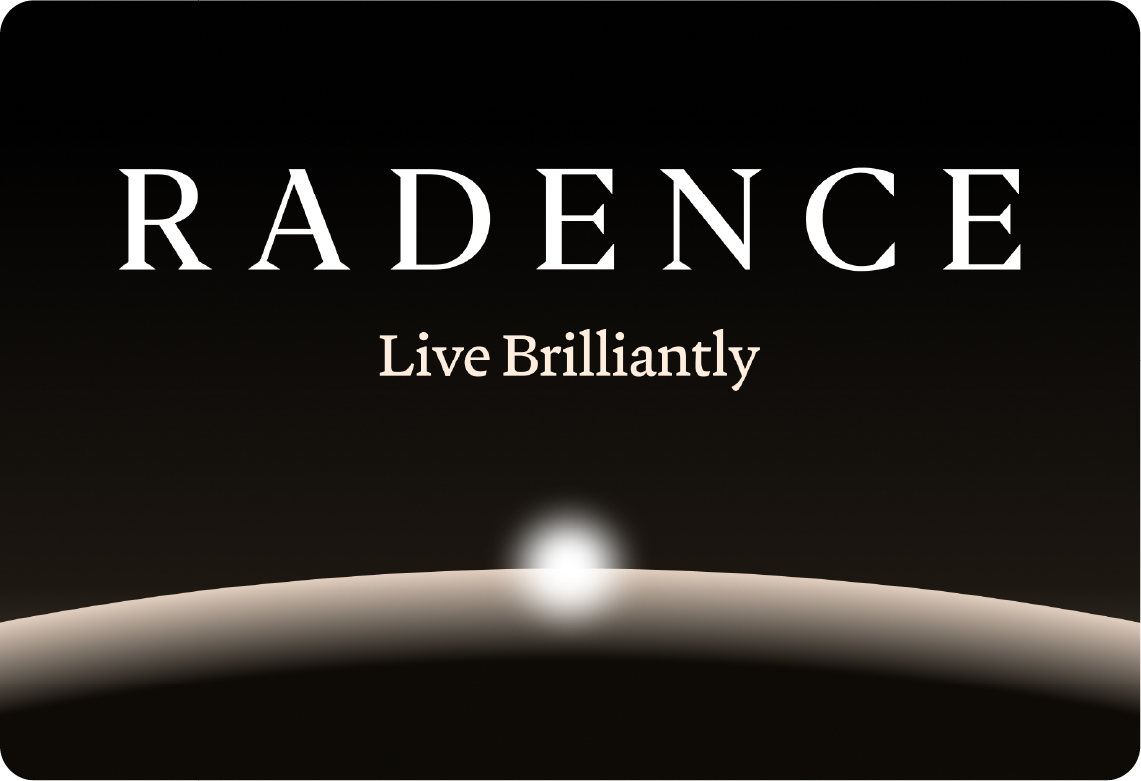
RadenceBrand Identity, Website

Climate Film FestivalBrand Identity
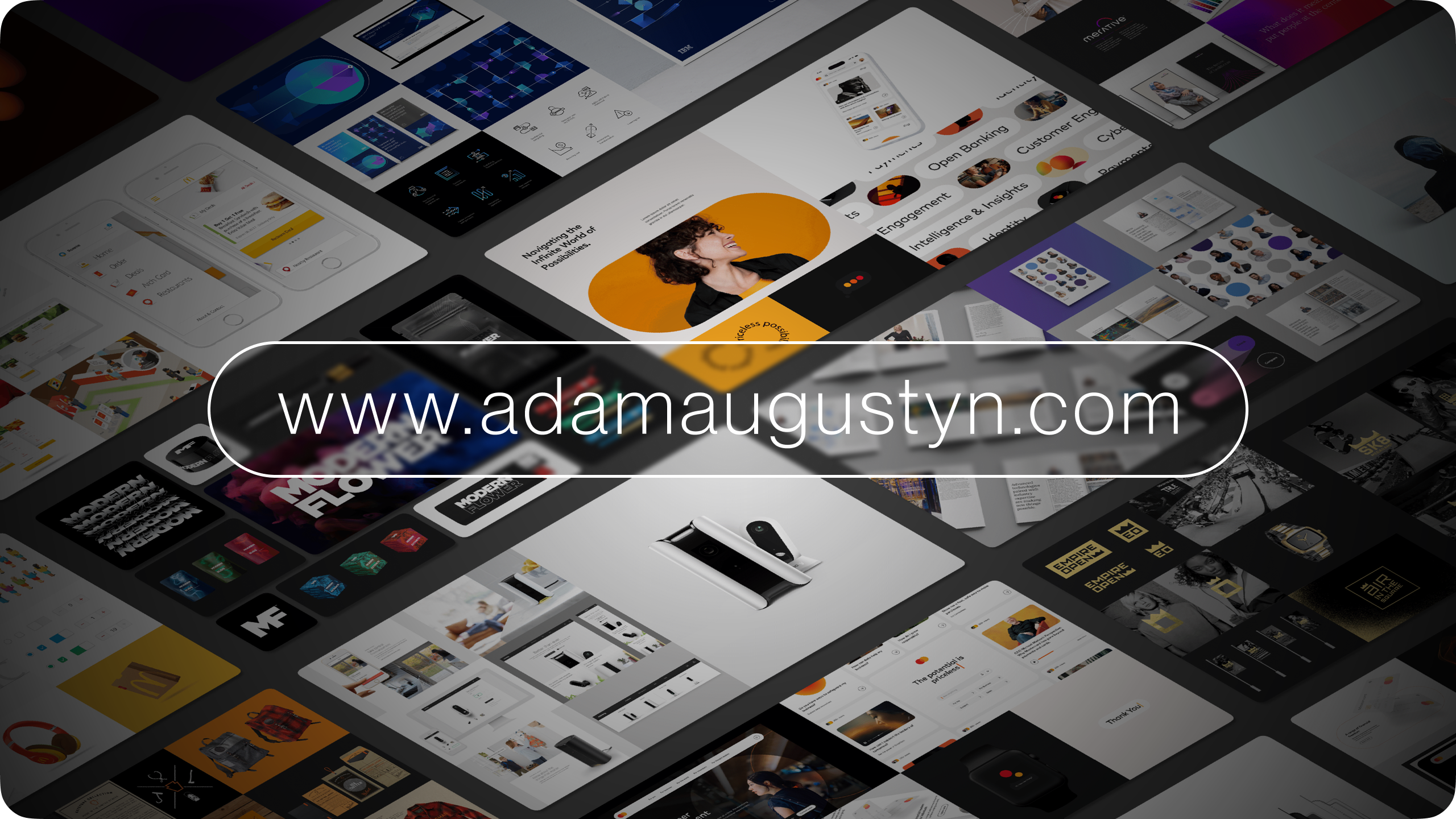
2024 Design Portfolio ReelMotion, Animation, Brand & Visual Design
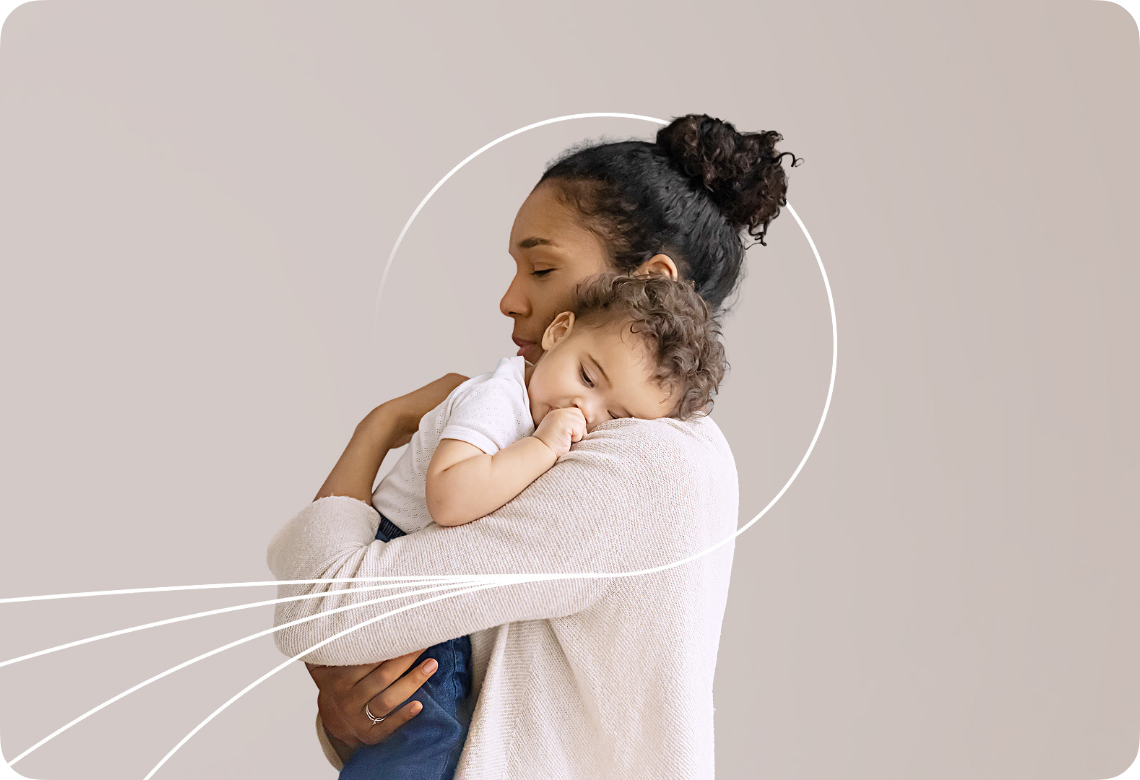
MerativeBrand Identity, Visual System, Website, Launch Campaign
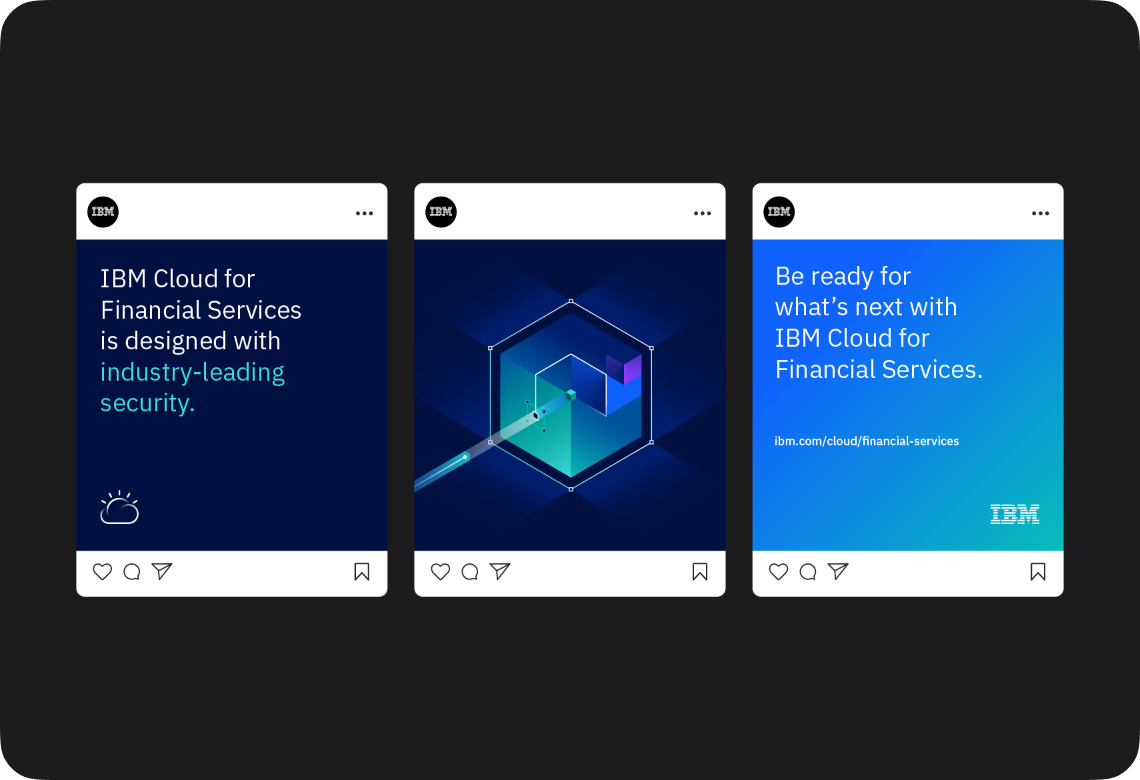
IBM Cloud for Financial ServicesB2B Campaign, Illustration, Icons
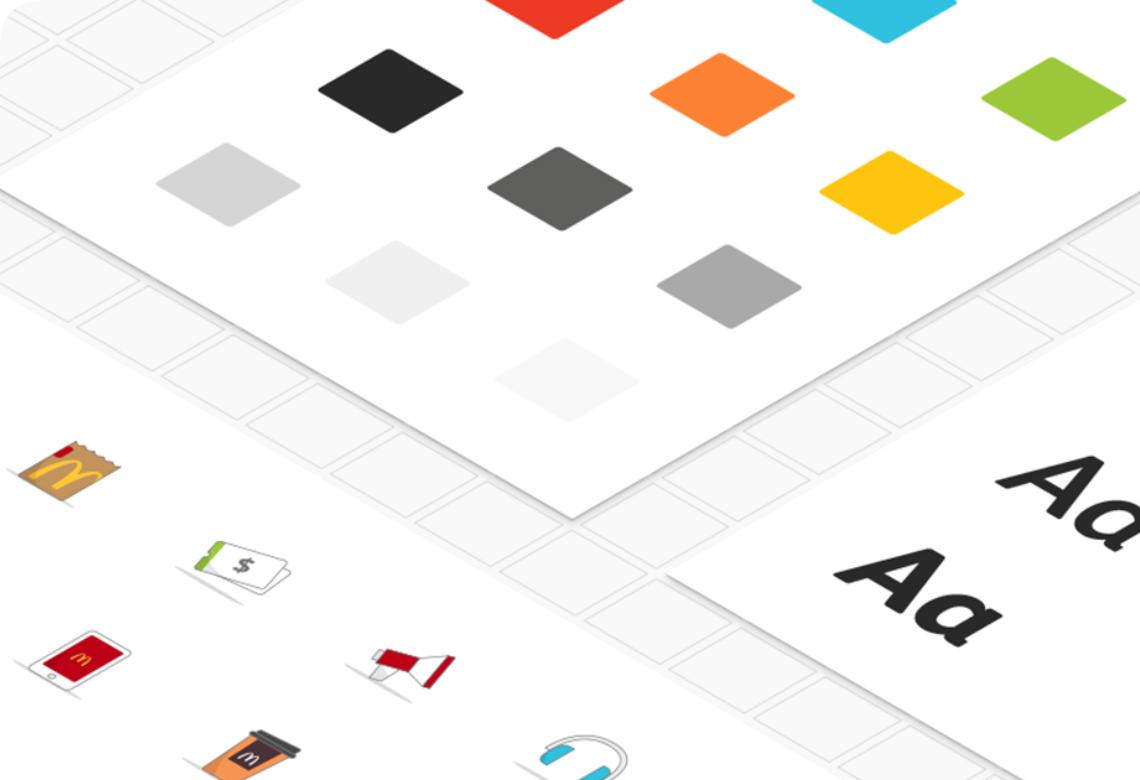
McDonald's Global Digital Design SystemDigital Design, UI Kit
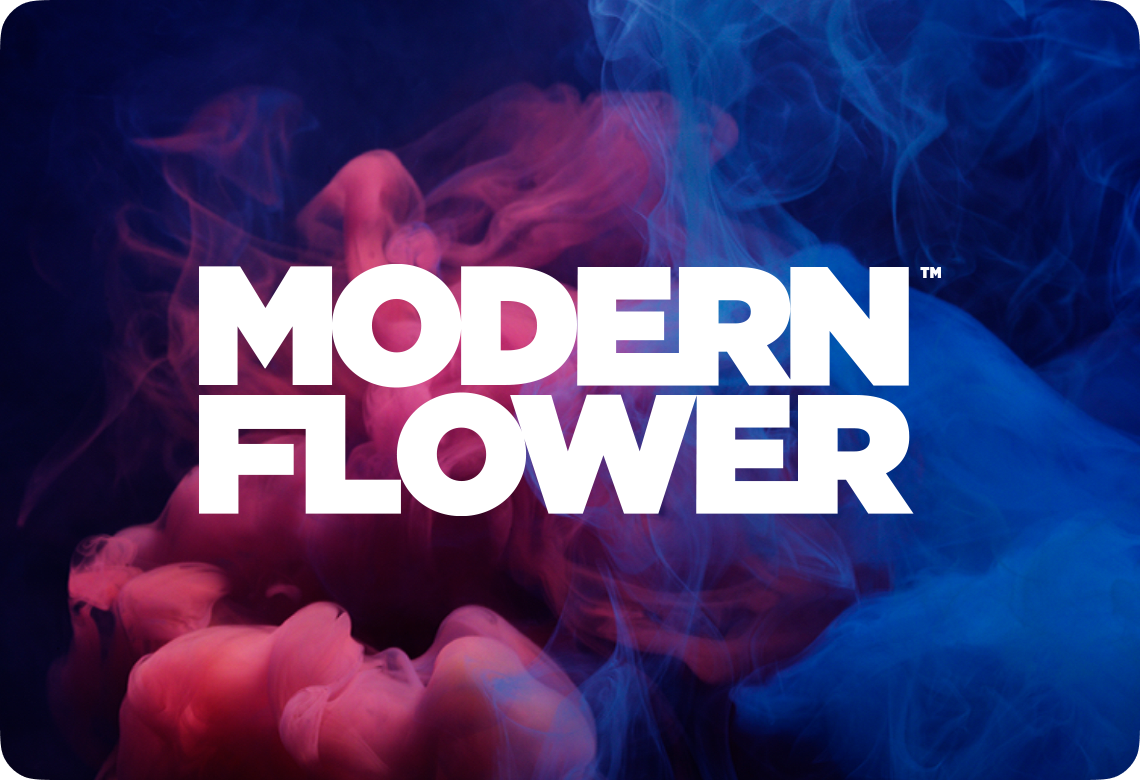
Modern FlowerBrand Identity, Packaging
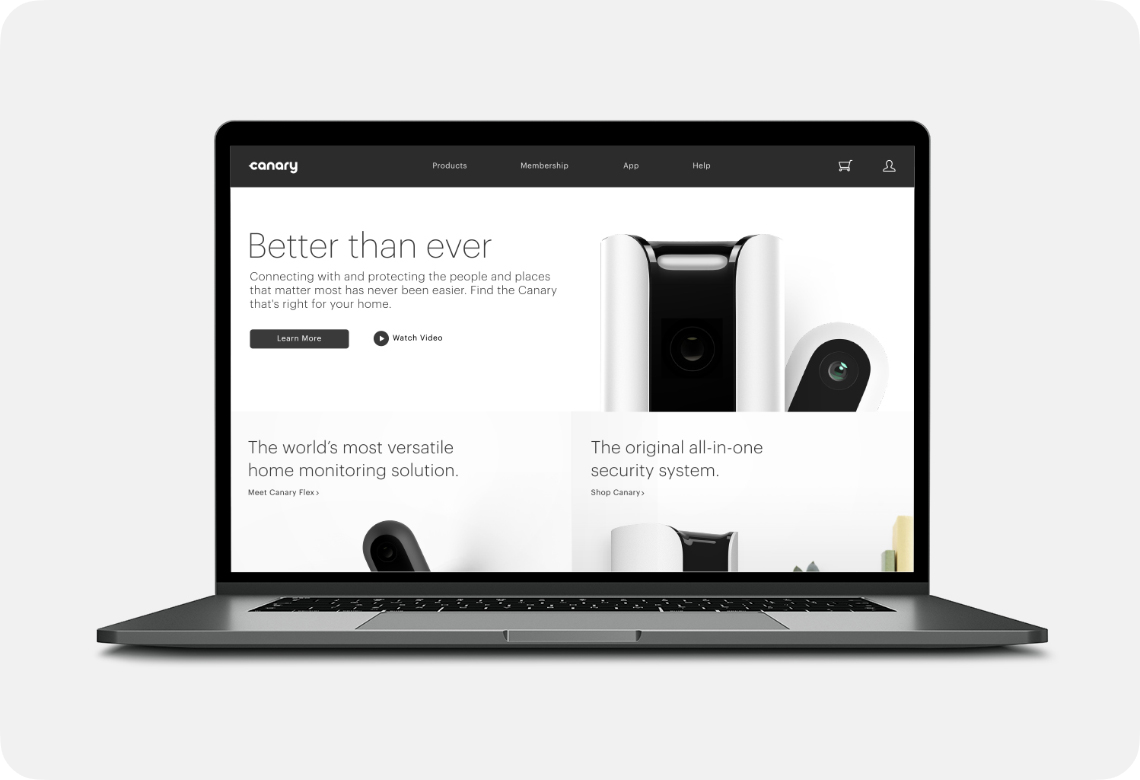
Canary WebsiteE-commerce Site
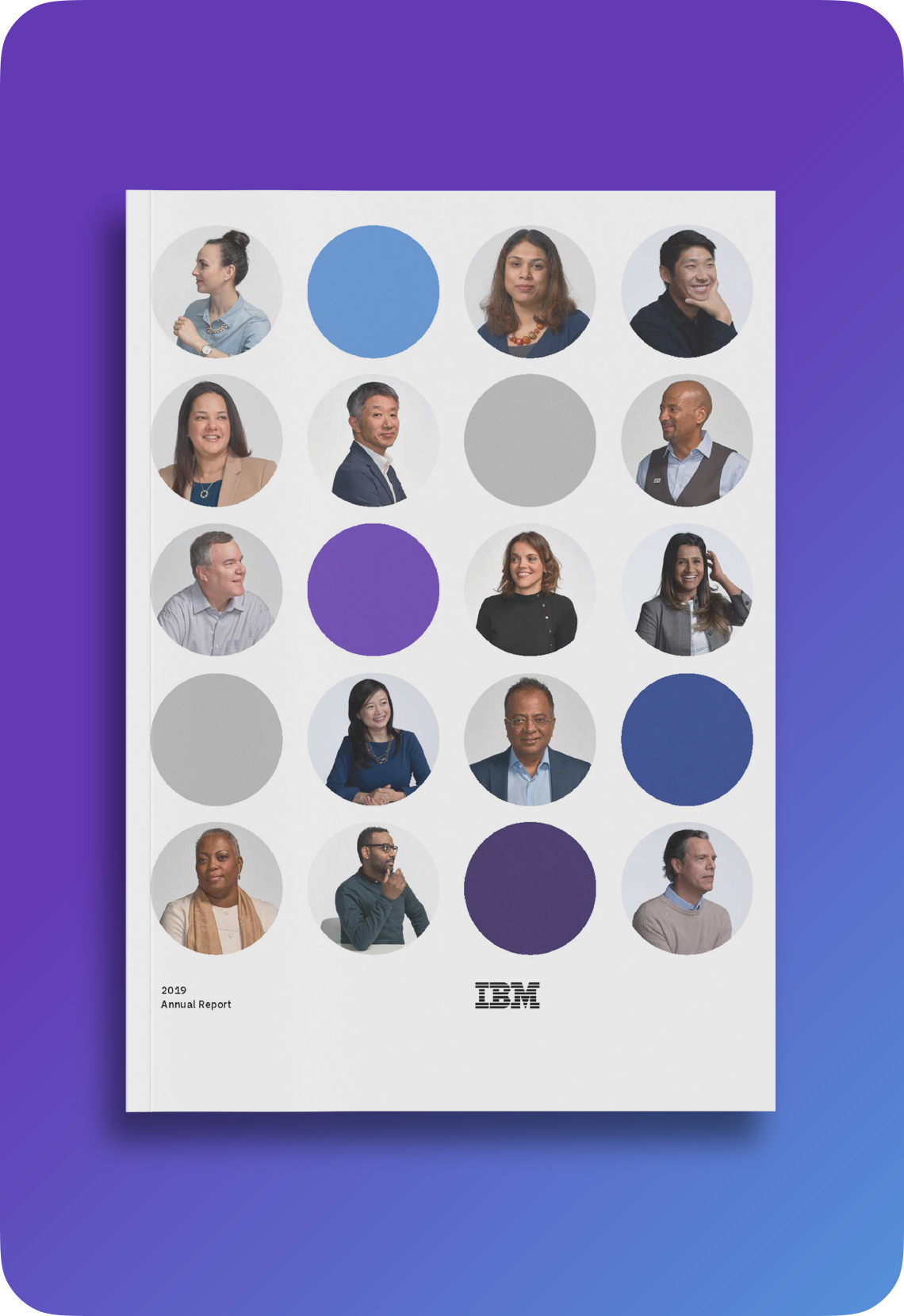
2019 IBM Annual ReportPrint, Layout, Editorial, Website
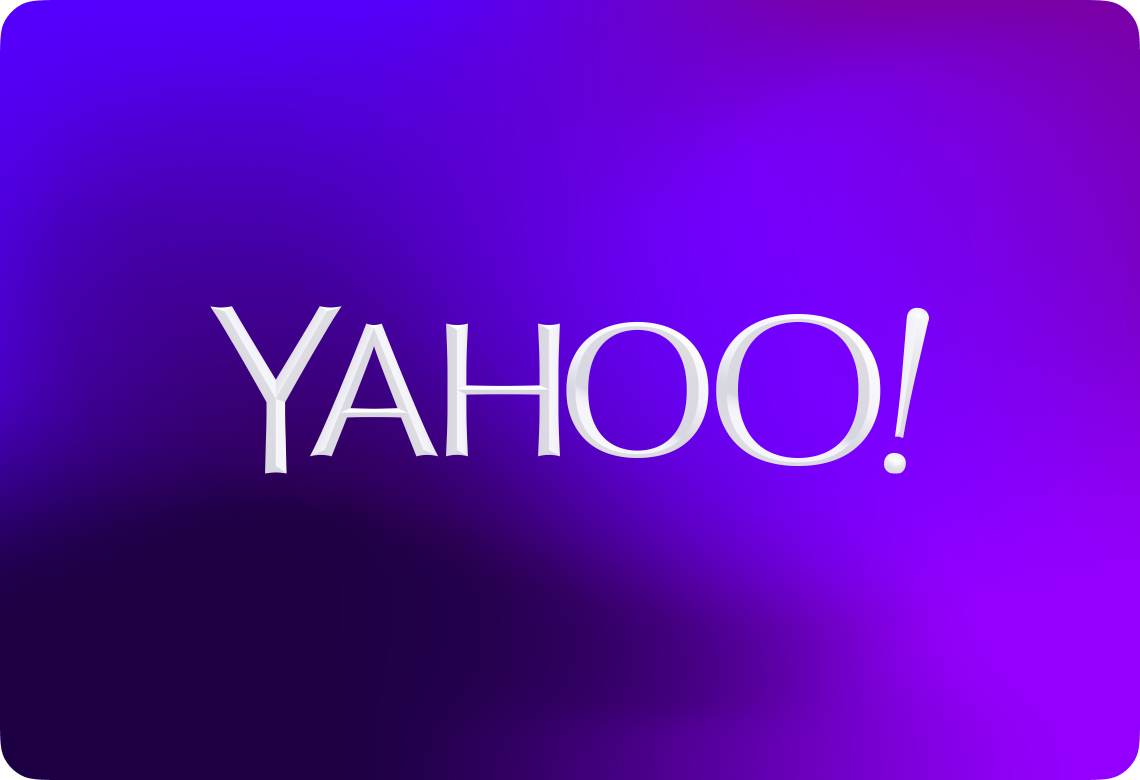
Yahoo! RebrandBrand Identity, Launch Campaign
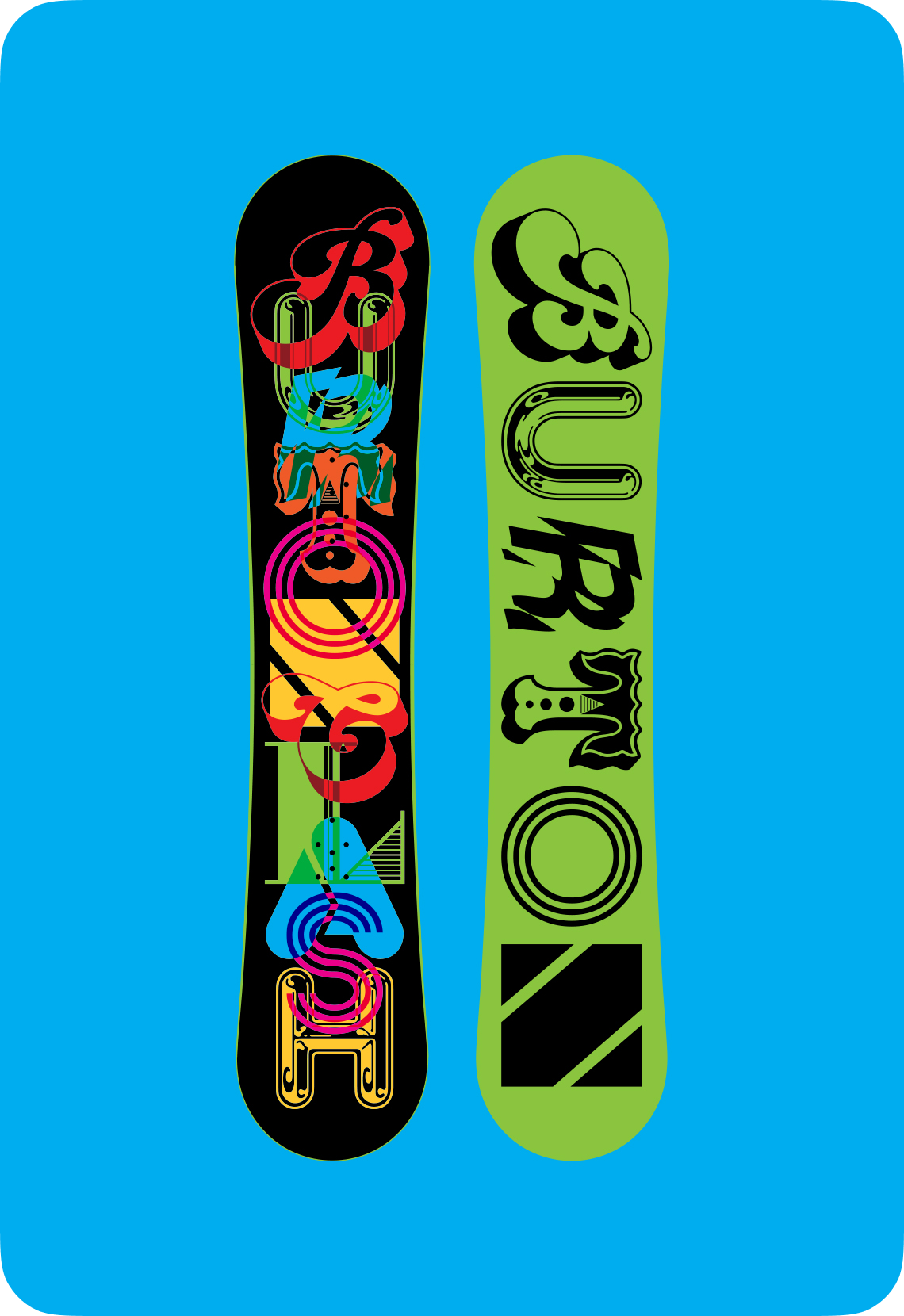
Burton Snowboards Clash ModelTypography, Illustration

MSG Empire Open - Air In The SquareIdentity, Naming, Branding
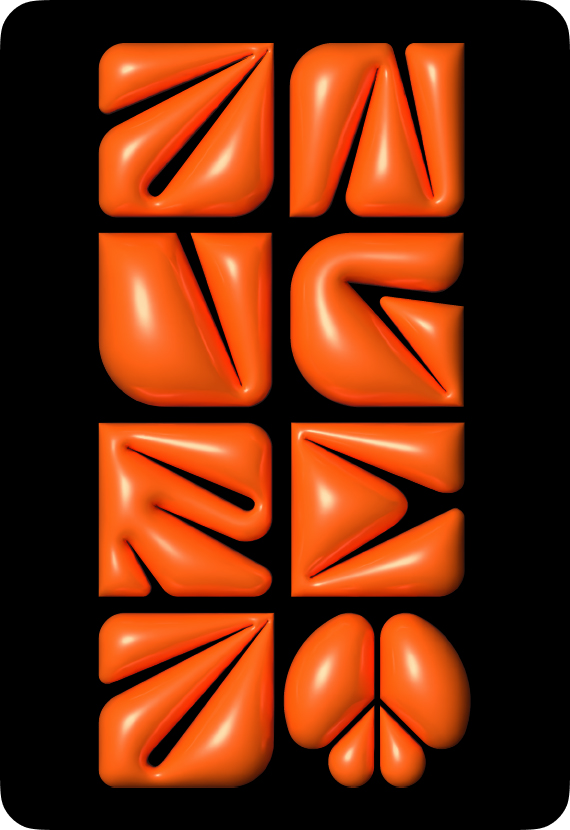
Aurange 3D TypeIllustration, Logo, Typography
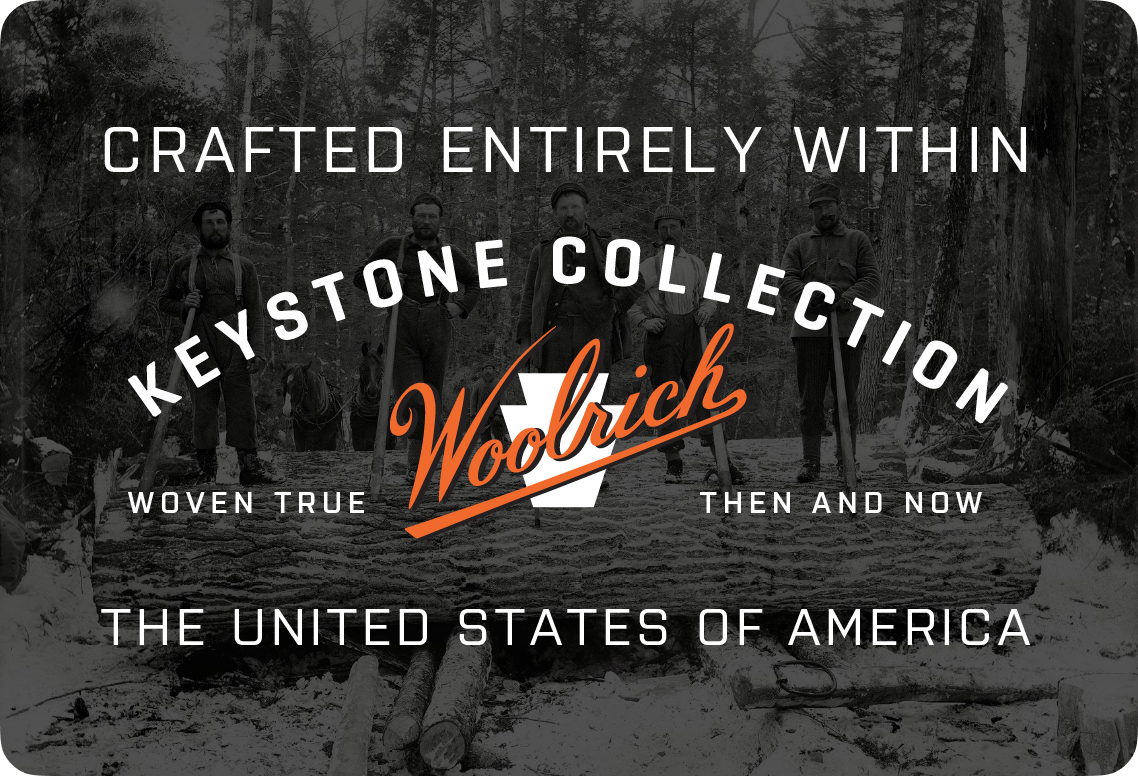
Woolrich - Keystone Collection U.S.A.Branding, Identity

Not Here // Still There Album ReleaseMusic Composition, Photography, Packaging
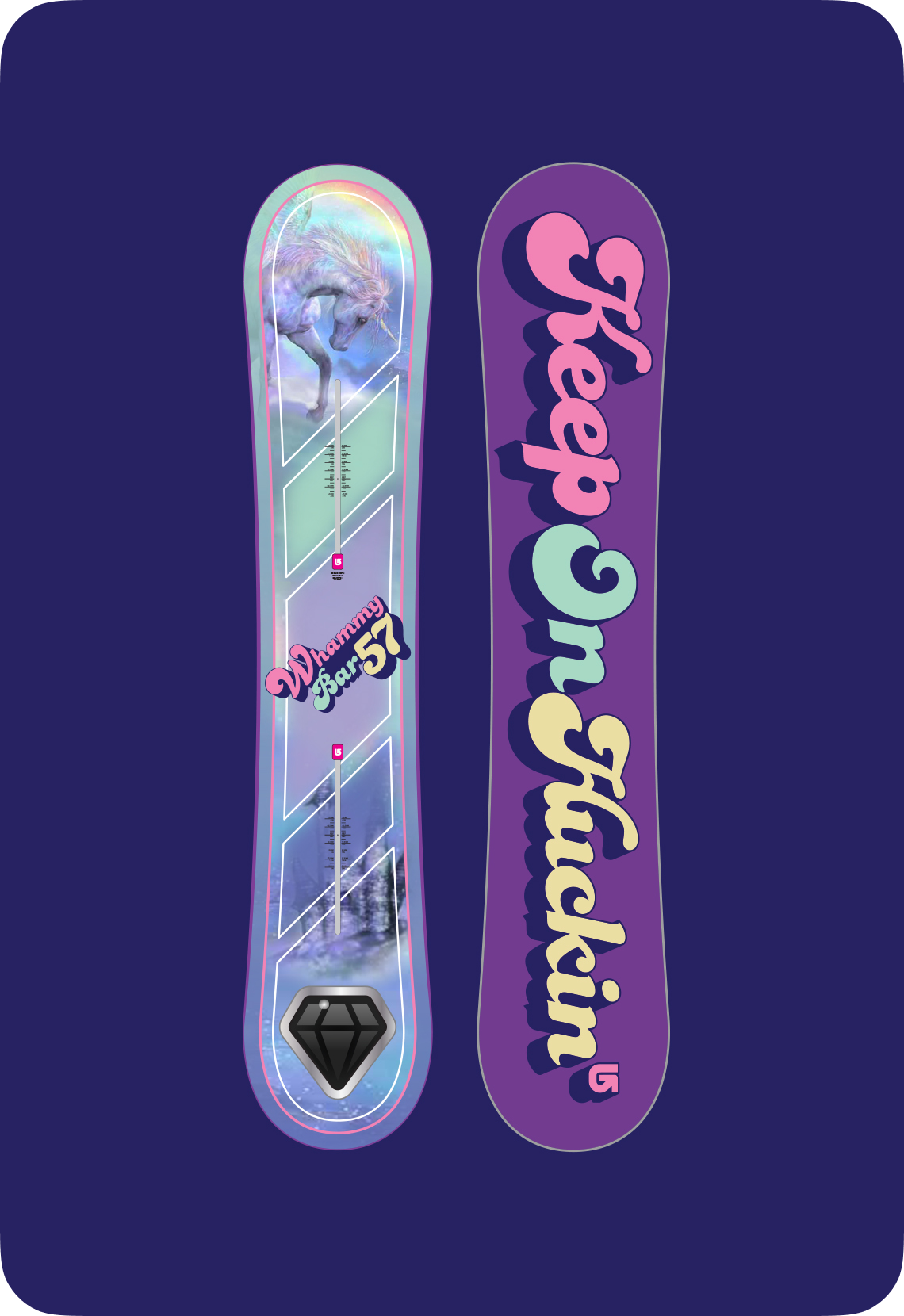
Burton Snowboards Whammy BarIllustration, Typography
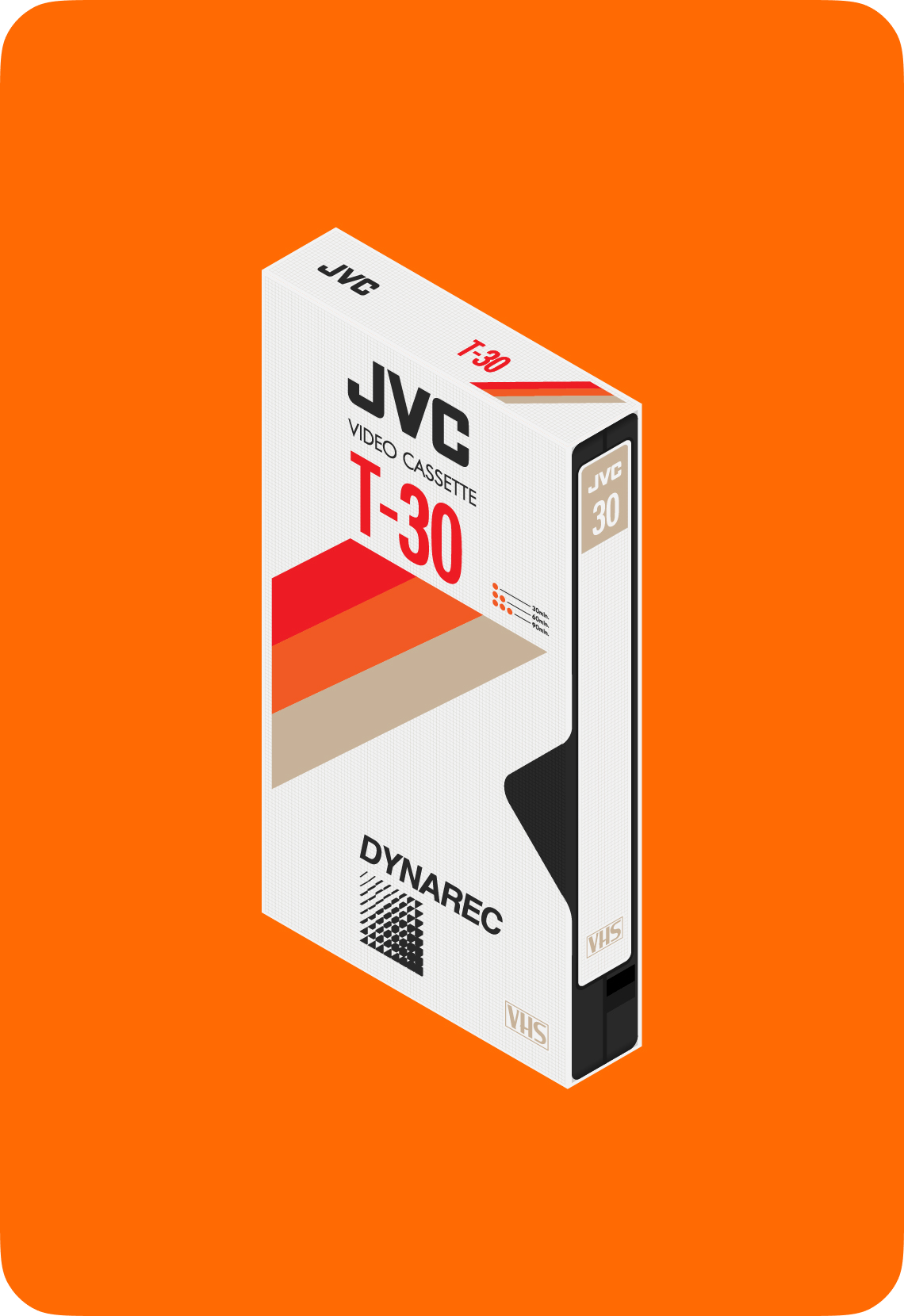
JVC VHS Isometric IllustrationIllustration

VW Camper Van Isometric IllustrationsIllustration
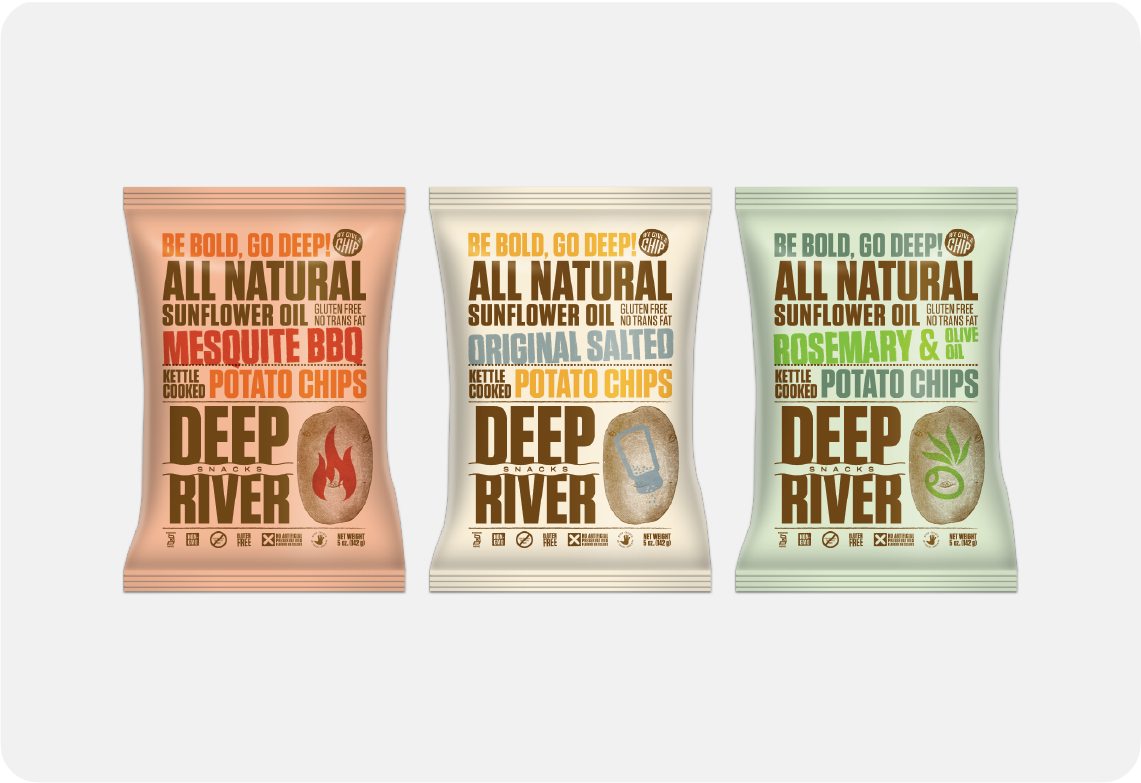
Deep River SnacksPackaging, Identity
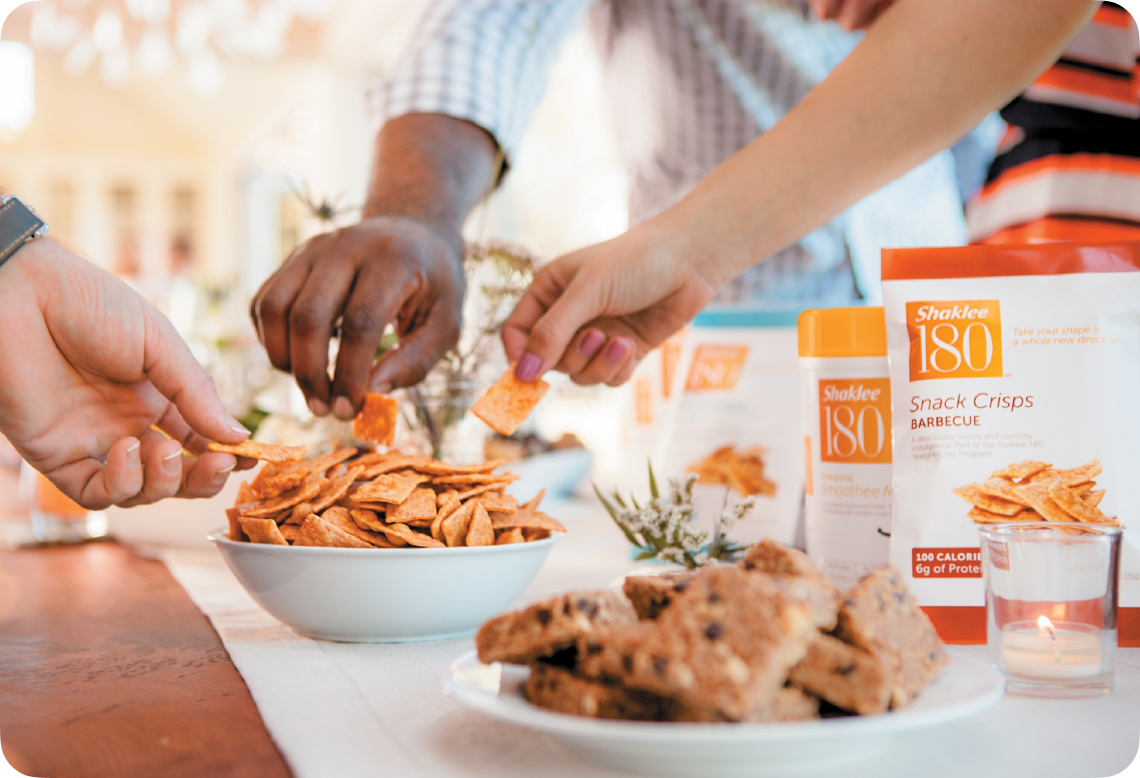
Shaklee 180 ProgramIdentity, Branding & Packaging
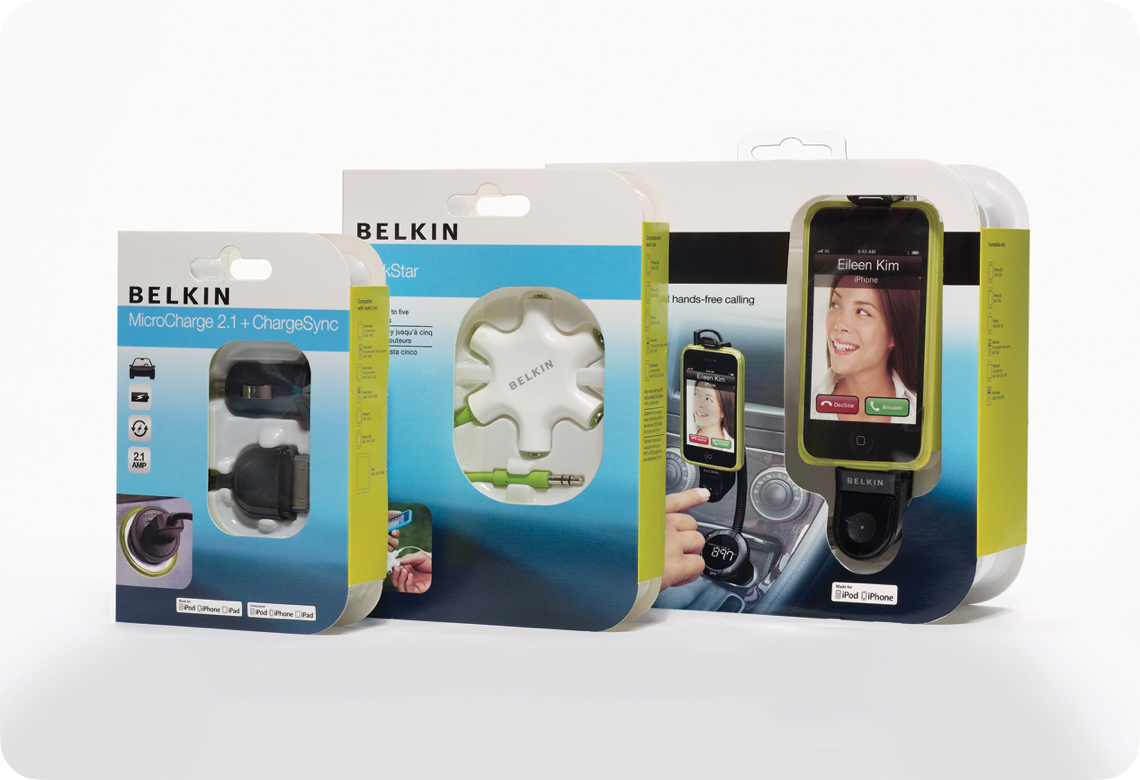
Belkin Packaging SystemPackaging
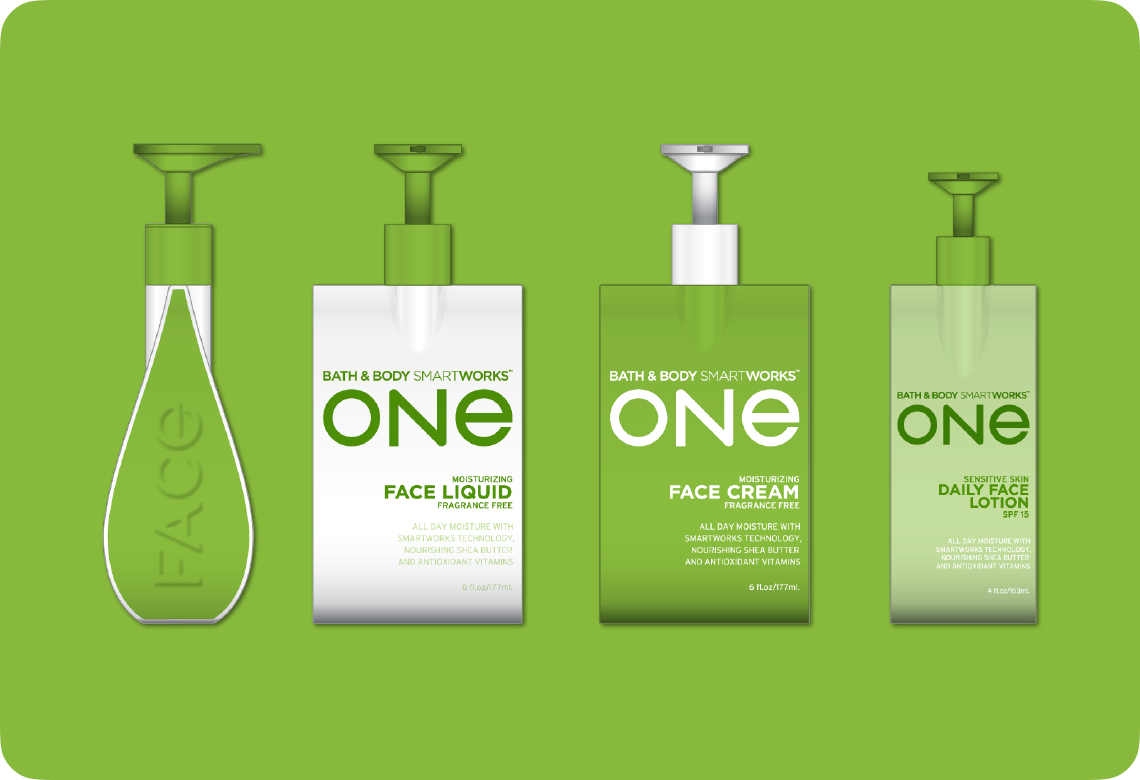
Bath & Body Smart WorksPackaging, Identity

Bayer AspirinPackaging, Branding, OOH
